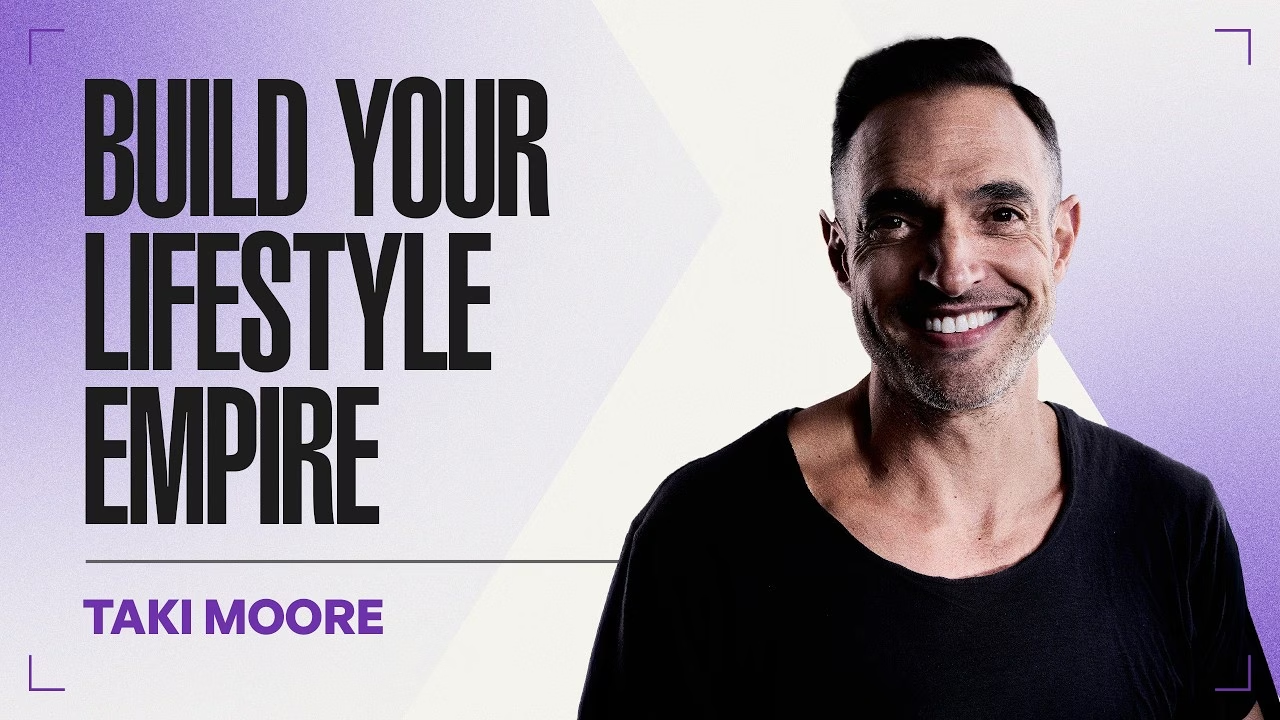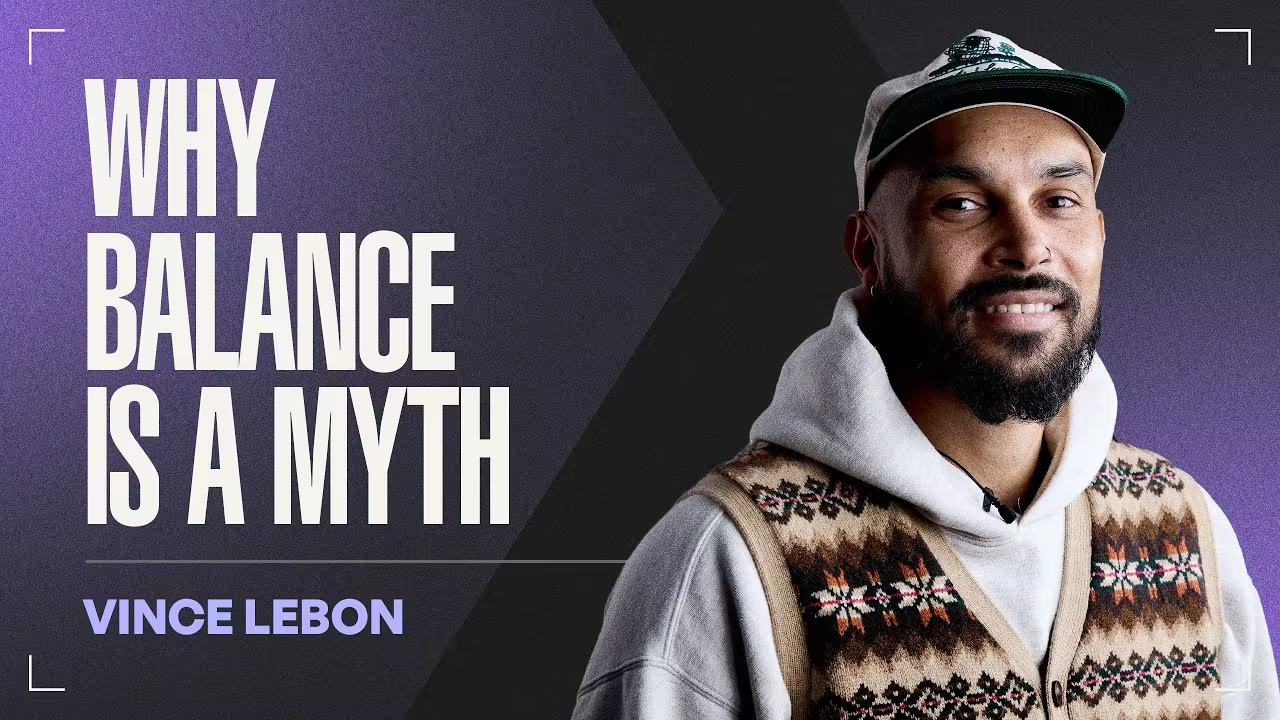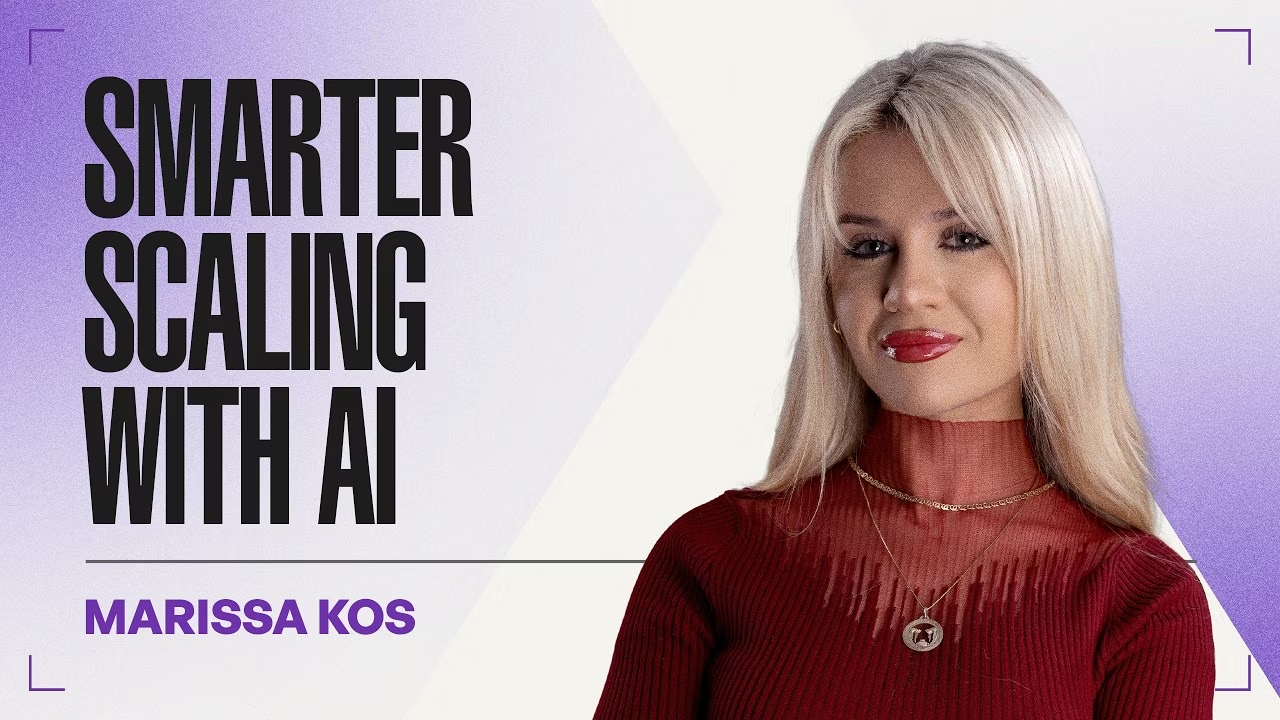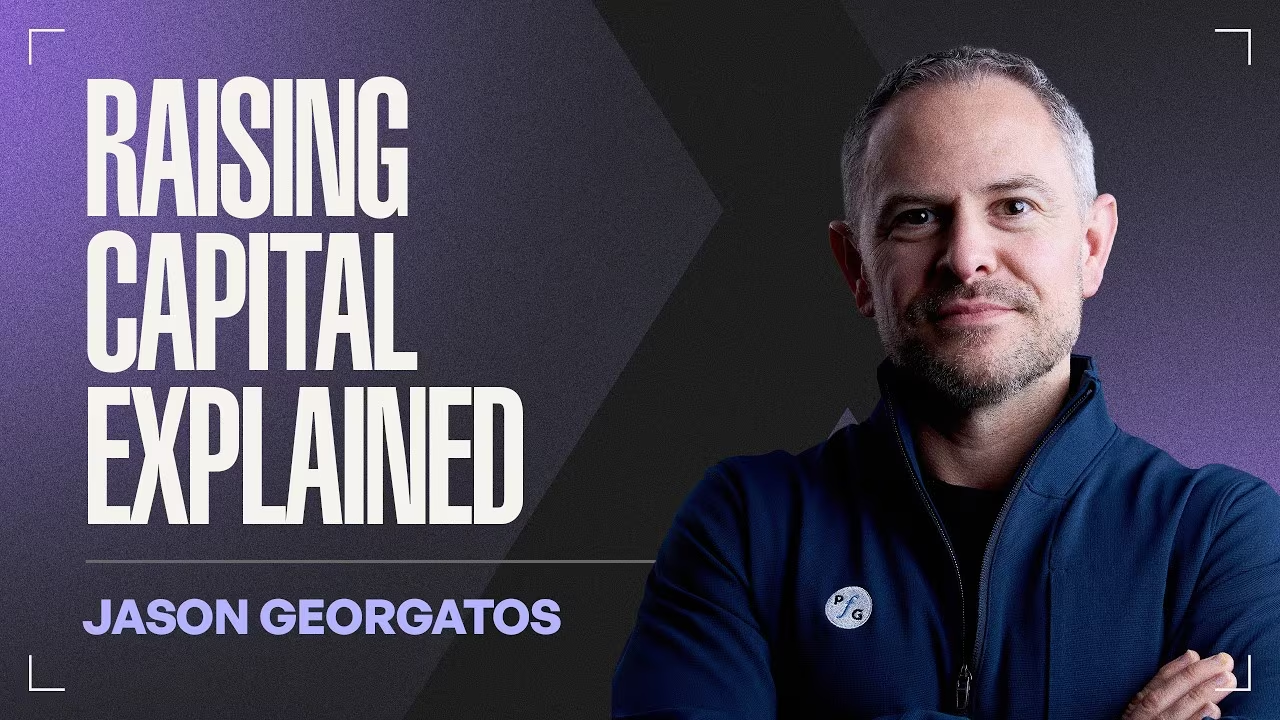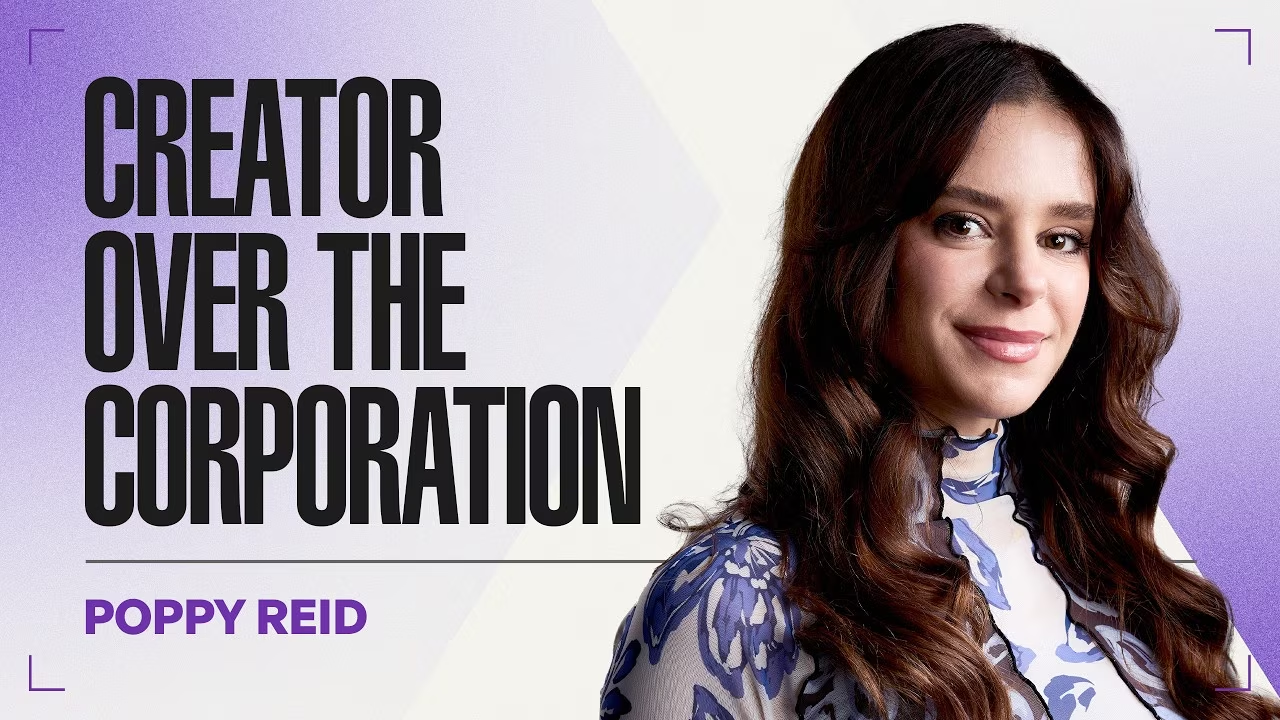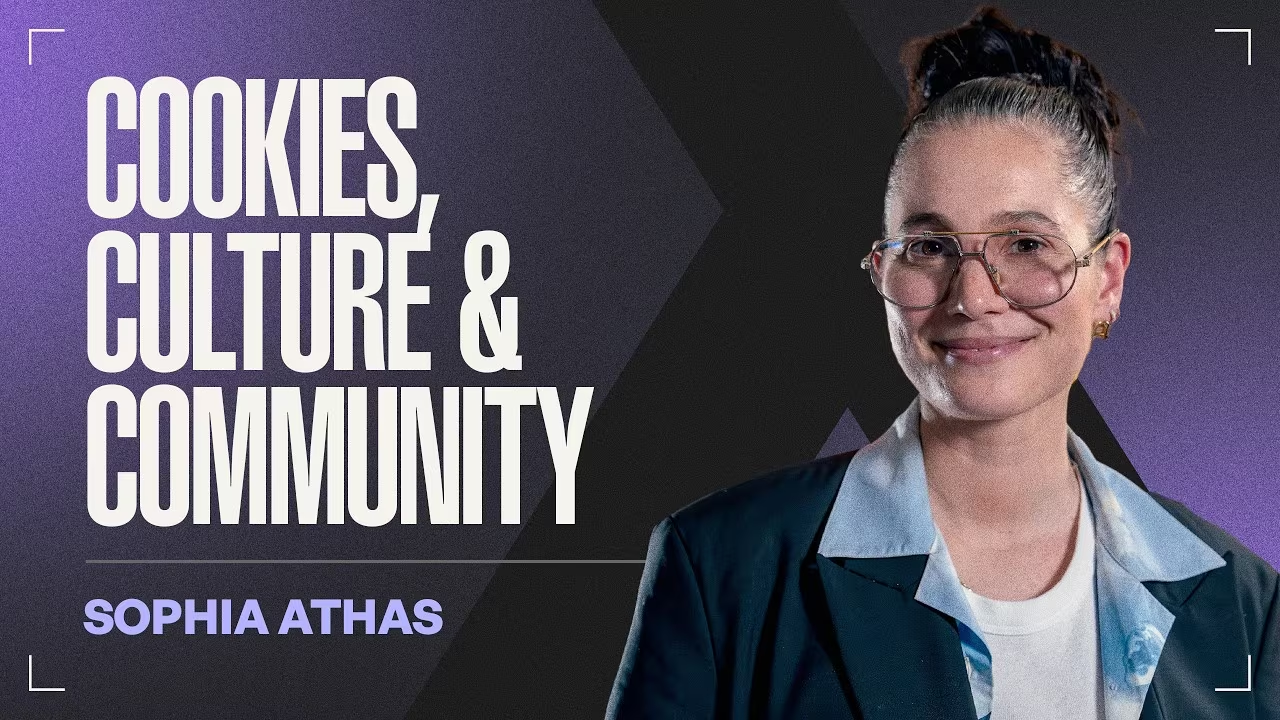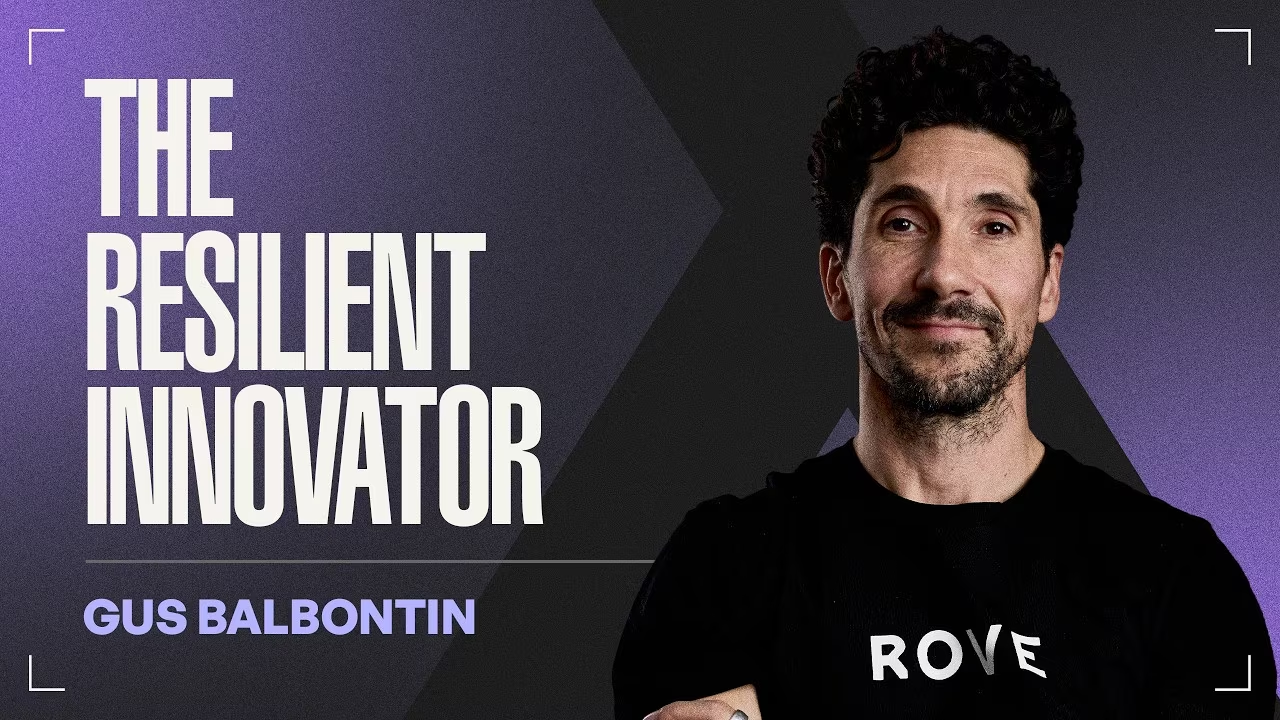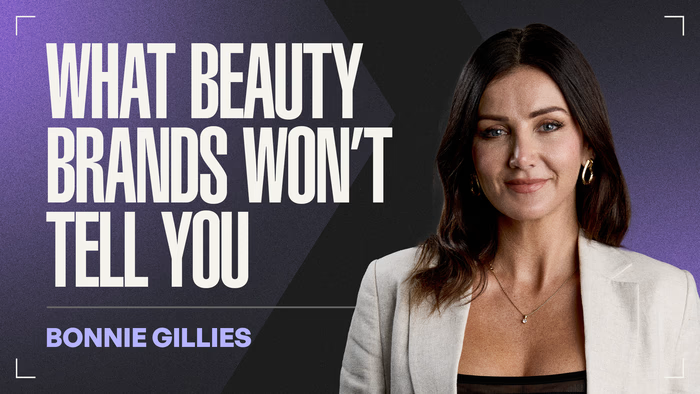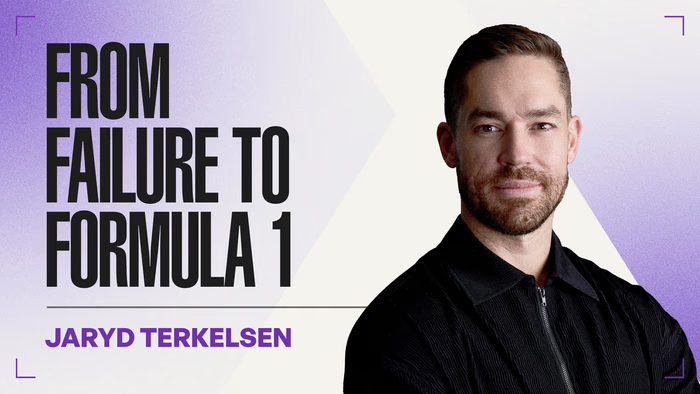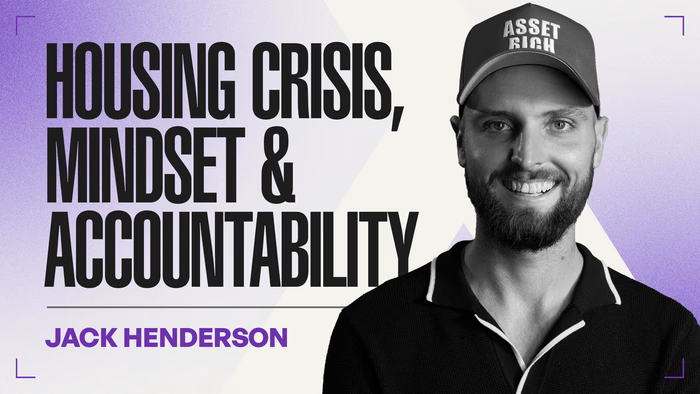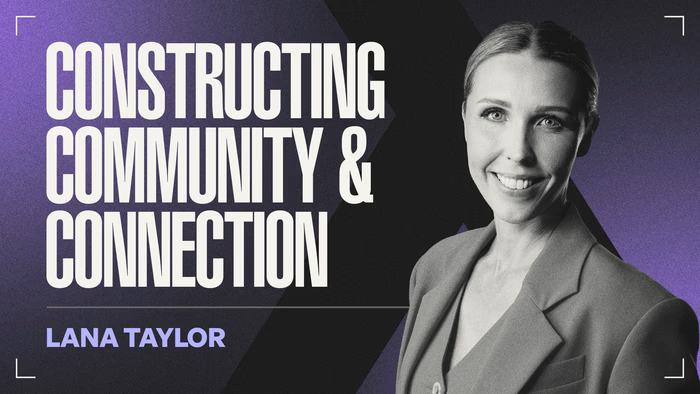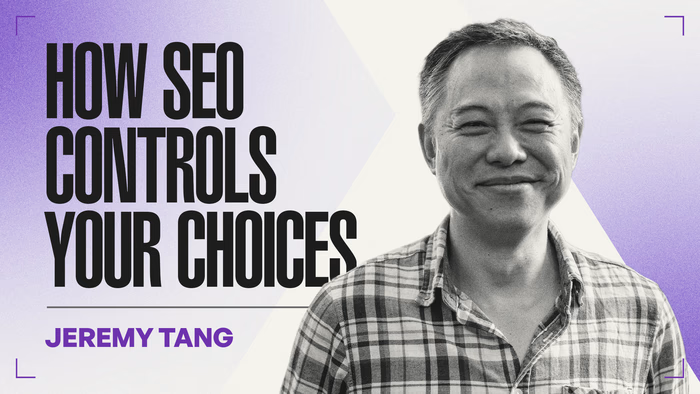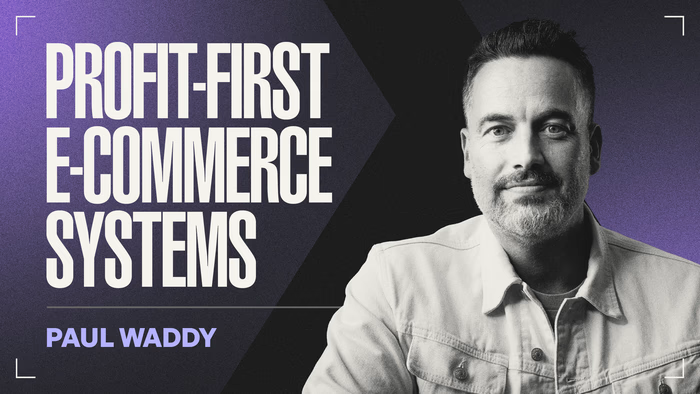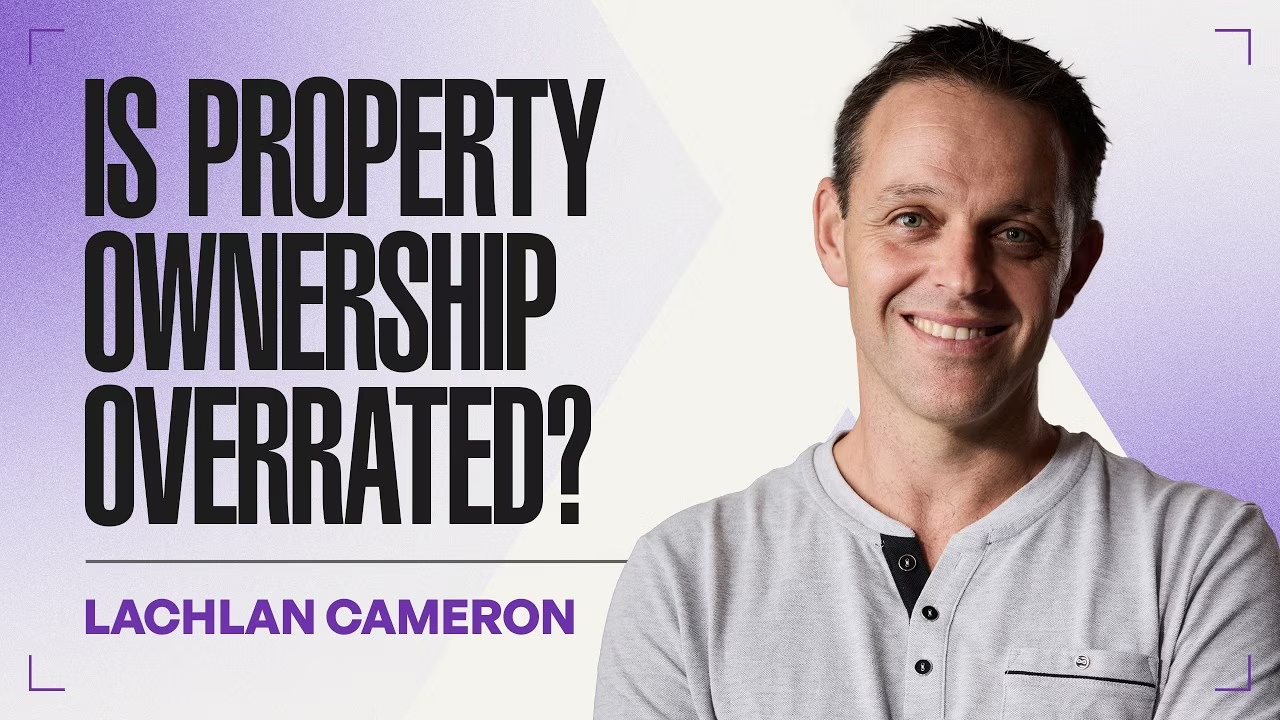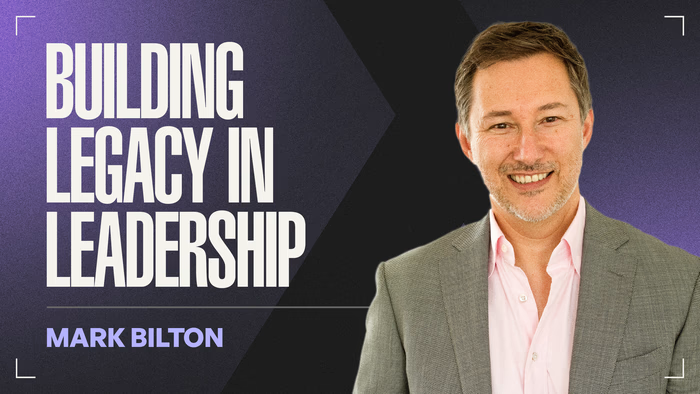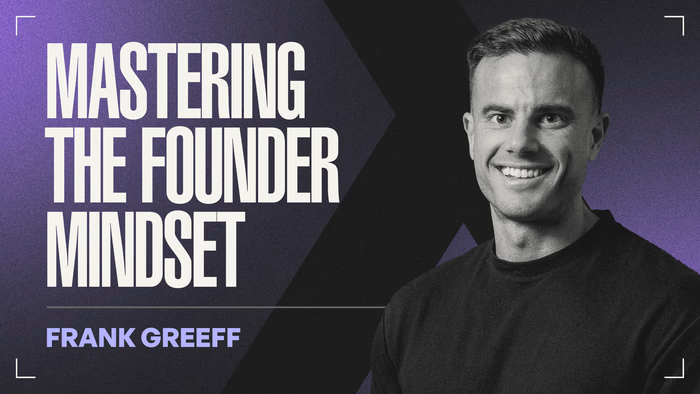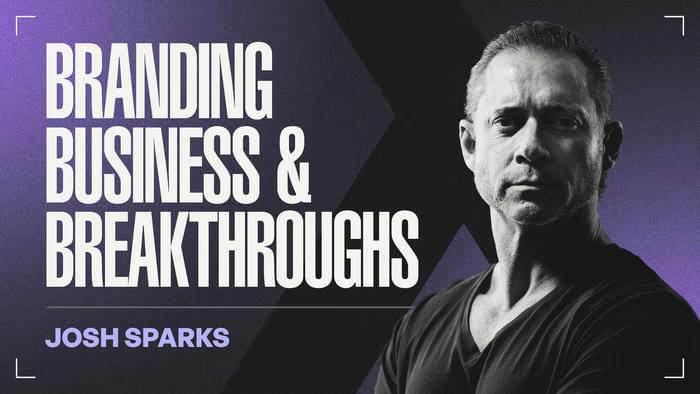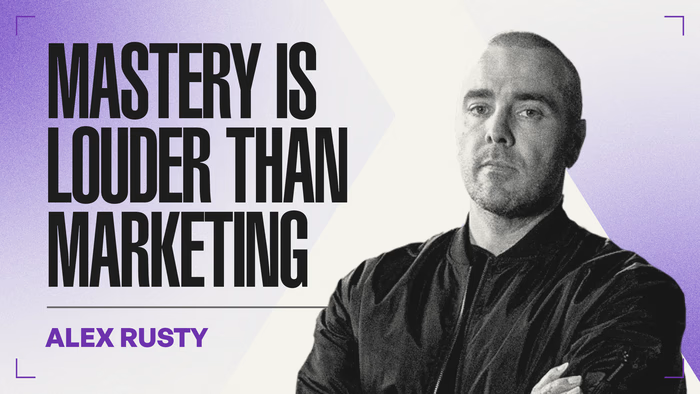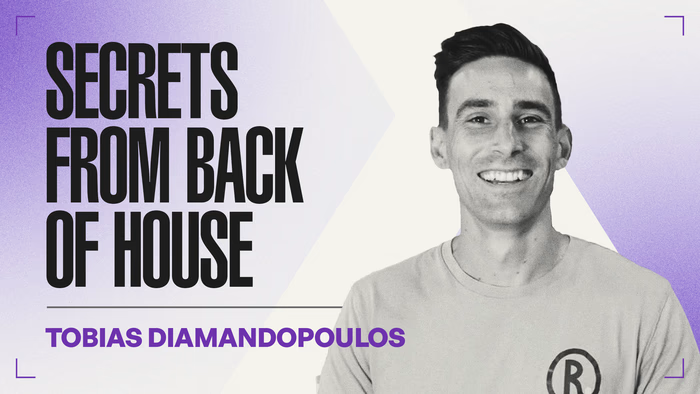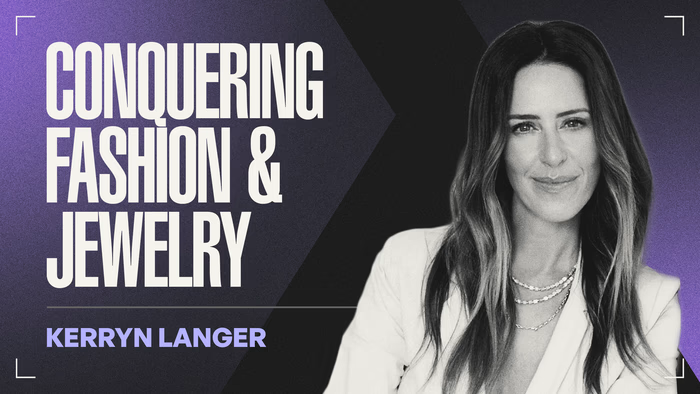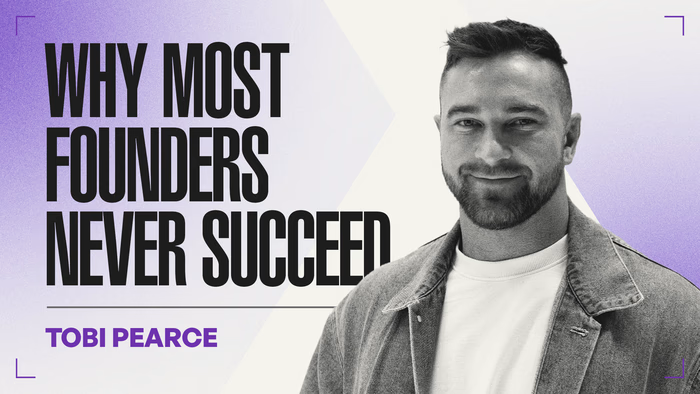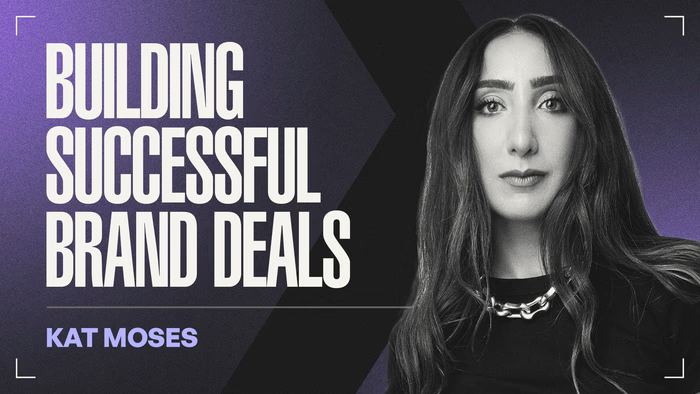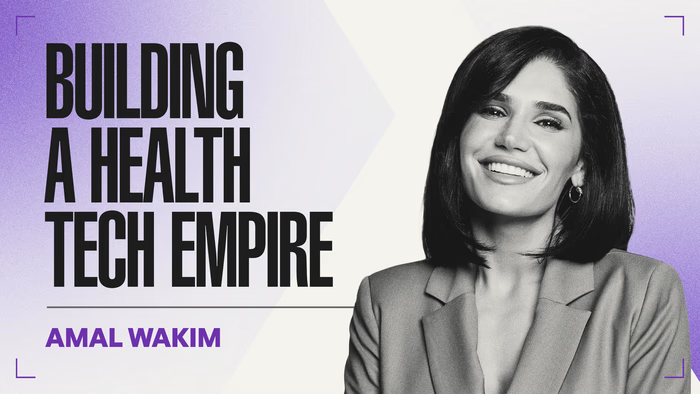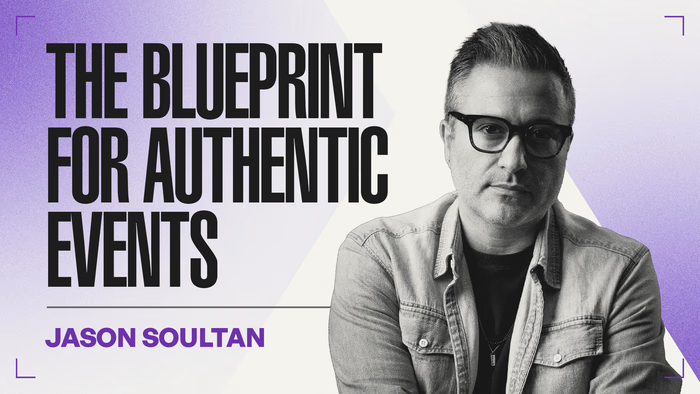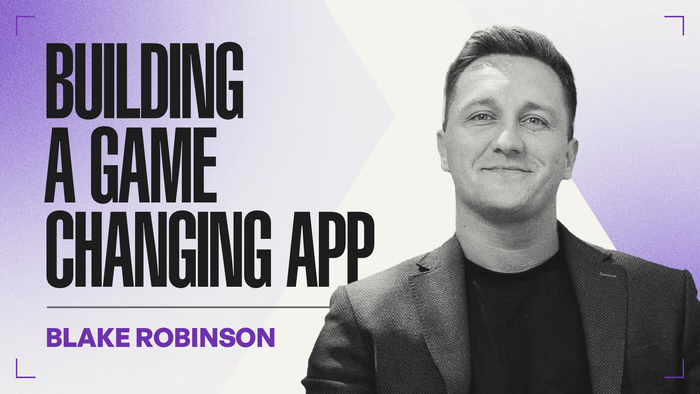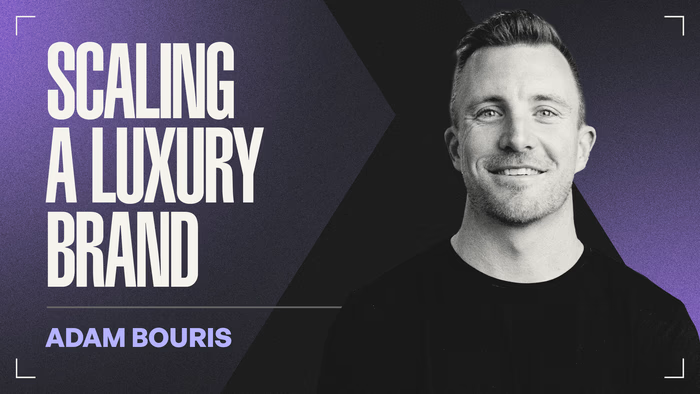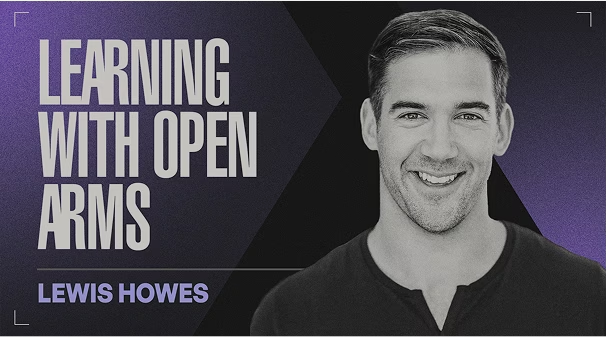.avif)


TLDR
Summary
The interview features Richmond Dinh, a multi-seven-figure coaching business founder, who discusses the essential role of storytelling in influence, the necessity of taking action before clarity, and the universal psychological barriers that prevent entrepreneurial success.
Richmond asserts that storytelling is the most important skill one can master, as it is the "basis of charisma" and allows a communicator to bypass the conscious mind to influence the unconscious mind, which listens in metaphors and pictures. He uses the Five S's Hero Story Framework (Scene, Struggle, Switch, Solution, Significance) to structure his narrative, ensuring the final Significance (lesson/moral) explicitly controls the audience's desired perception of his brand.
He introduces the Seven Deadly Ps—universal pitfalls (Pessimist, Procrastinator, Periodic, Pretender, Perfectionist, Pleaser, and Pride) that hinder success. He emphasizes that Action Always Precedes Clarity; people are afraid of others seeing them fail, not failure itself. His own journey as a life coach for the elderly (a failed niche) taught him that you never know what will work until you take messy action.
Richmond advises that the future of the consulting space is based on community and experience, not just content, as human interaction fulfills the deep need to feel understood and seen—a trait that even technology cannot replace.
Highlights
- Storytelling: The most crucial life skill, as it taps into the unconscious mind (which listens in metaphors) and is the basis of charisma and influence.
- Five S's Framework: Every story must follow the structure of Scene, Struggle, Switch (Aha moment), Solution, and Significance (Punchline).
- Contrarian Strategy: To stand out, one must be contrarian (e.g., teaching parents to put kids second to the intimate marriage), as finding a unique angle cuts through noise.
- Niche-Down: When defining a niche, one can choose from nine categories (industry, race, location, etc.) or create a unique mechanism (vehicle), like his Tiny Challenges.
- Identity Source: The only way to know a person's true values is to observe where their time and money are actually going, not what they publicly say they value.
- Sales Model: Marketing does 99% of the sales by pre-framing the client. The final sales conversation must persuade the client (through intrinsic motivation) rather than convincing them (through external pressure).
- The Eighth Wonder: The greatest invisible force dictating success is proximity—who you spend time with. The first step to finding a great community is cutting off toxic people.
- Personal Transformation: His pivot from being an optometrist to a coach was catalyzed by realizing that Action Always Precedes Clarity; you must move the boat before you can steer it.
- Final Mantra: The antidote to pride and ego is to "empty the glory" every single day, acknowledging that others, grace, or the team contributed to success.
Transcript
00:00:01 - 00:00:50
Every single story follows a framework. If you can learn how to tell stories, you become a better communicator. You become more attractive. You become more charismatic. You become more influential. If you're not getting what you want in life, it's because you're not great at telling stories to get what you want in life. Richmond Dinh is the creator of the Tiny Challenge Method and founder of a multiseigure coaching business. He's helped over 1,200 coaches attract clients and build high
00:00:25 - 00:01:21
performing businesses. Bridgemond has worked with the likes of Russell Brunson, Myron Gooler, and Scott Harris. Action always precedes clarity. That's the only way to get clear on something is to take action on it first. In marketing, the goal is to have someone that doesn't know, like, or trust you do what you want them to do, but for their reasons. The only way to know someone's true values is to look at where their money is going and where their time is going. So, how do you identify this in your
00:00:53 - 00:02:06
target audience? I call this the seven Ps. Seven deadly Ps that stops anyone from achieving what they want in life. I don't think I've ever shared this anywhere before. The first one is the pessimist. The procrastinator, the periodic, the pretender, the perfectionist, the pleaser, and what's number seven? The worst one of all is [Music] this episode is brought to you by Wix Studio. So, Richmond, you've helped thousands of people monetize and scale their personal brands, um, their coaching businesses
00:01:33 - 00:02:26
and so forth to, you know, some of them not only to six figures, but to seven figures. What has been the biggest takeaway for you on how to stand out in the market when there's so much noise and there's so many people trying to do this? Most people think coaching is easy and making money is easy online. And it looks easy online, but it's not. It's actually the most difficult thing to do to make money online as a coach. And it's not to discourage people. It's just because there's so much competition out
00:02:00 - 00:02:51
there and it's a very highly skeptical market. In order to stand out, you got to need to you need to study what everybody else is doing and then be contrar to it. Every single person watching this, you're going to have a part of you that wants to please others and you know that yearning for acceptance. And so to be different, you have to accept that people are not going to like your ideas. They're going to reject your ideas and they're going to think you're crazy, including the people
00:02:25 - 00:03:22
that are most closest to you. You know, parenting coaching, for example, like most most people watching are, you know, either have a mom or dad or they're a parent. And I wanted to stand out from the crowd from being a typical parenting coach. I would probably say things like um to be a parenting coach, you need to put your kids second to you and your wife or you and your husband. Whereas most parents will say, "No, you got to put your kids first." We don't understand that if you put your kids
00:02:54 - 00:03:38
second, they like they understand that the most important thing in life is to build an intimate marriage, an intimate relationship with your spouse. And they will model that when they have a partner. And so that's a contrarian view to parenting was most parents will freak out when you say, "What you putting your kids second?" You got to find that unique angle that cuts through all the noise. And the best parents in the world will always put their kids second and put the intimate relationship first. If
00:03:16 - 00:04:15
you look at like Mark Zuckerberg for example, he's not giving his wealth to his kids because the worst thing you can do is, and I heard this from, I believe it was Warren Buffett, give your kids enough so they can do anything, but not too much that they do nothing. And so that means you must be selfless enough to say, I'm going to put my kids second. So that's an example of a contrarian view for a parenting coach. So when you're talking about being contrarian, if someone, let's say, and
00:03:45 - 00:04:49
I've seen this one um uh quite a bit at like public speaking events and so forth where you know, you meet someone, they're maybe 19 or 20, and they say, "Dane, I want to be a life coach." Uh and you know, that to me sounds quite ambiguous. It sounds too broad scope. What's typically your go-to advice around like how they could kind of be a contrarian if if that's their perspective? Yeah, good. So, I heard this from my first mentor, Scott Harris, who said, "The world does not need another fat,
00:04:17 - 00:05:22
broke, divorced life coach." And unfortunately, most people who want to become a life coach are either fat, broke, or divorced. So, I've seen it uh I've seen it a few times. Yeah. And you got to tell people the truth. Like it's like well first of all I think you should step number one of being a life coach is sort your stuff out first. Like that's number one. And it's not to be perfect but you really need to look at your life and say okay why would someone hire me to be the life coach? Like what part of
00:04:49 - 00:05:33
my life do I have in order first? And it may take you 1 2 3 years to sort that stuff out, but it'll be worth your while cuz otherwise you'll be in business for 2 or 3 years and you're not making any traction because no one's going to tell you that your breath stinks. But you know, you always have that friend that you got food on your teeth or something and they say, "Oh, you got food in your teeth." And you want to know that. But some people don't tell you that and you
00:05:12 - 00:06:06
go home, you're like, "What is this? How come no one told me?" You got to That's step number one. Find someone that's brutally honest with you to tell you that your breath stinks. That's number one. But after that, if like you're okay with that, then who do you want to coach? Like who do you want to be a life coach for? Is it going to be for teenagers? Is it going to be for single dads? Is it going to be for corporate moms? Is it going to be for whatever it is? But who do you want to be a life
00:05:38 - 00:06:39
coach for? And be bold enough to make a decision. We all heard of the niche FOMO. Like I don't know, niche FOMO is a thing now. You know, if you had to go to a psychologist and get a DSM reading, there is a thing called niche FOMO now. People are just afraid to niche down. And so, like, are you suggesting someone owns a problem? Are you suggesting that they own a niche? Like, maybe for the viewers, you could describe, well, what is a niche and what does constitute that? And at what point is it specific
00:06:09 - 00:06:55
enough that it's actually going to function? Yeah, cool. So, there's three three ways you can go about this in my opinion anyway. So number one, if um this is your point of difference. So if you're just a business consultant, number one, you're either going to be a business consultant for really high net worth celebrities, you know, like the celebrity kind of person, celebrity chef. So that way you don't really need to niche down to any kind of business, but you're like the celebrity guy or
00:06:32 - 00:07:28
girl. Or the second one is, yeah, really need to niche down on which type of businesses. Is it going to be small businesses, mediumsiz, large, online, brick and mortar, whatever the case may be. Or you can have a unique mechanism in order to help your clients make money or get clients or make more sales. Like something so unique that no one else has. Kind of like I guess when you look at Russell Brunson owns ClickFunnels. He has his funnel platform which is a unique way of helping other business
00:07:00 - 00:07:52
owners make money because he's got a unique vehicle even though he's not niche to any one business but he's got this unique vehicle to help people make money. So a unique vehicle can also be a way to differentiate yourself from the crowd too. That totally makes sense. So like in in Russell Brunson's case, uh he has, you know, the ability to create the ultimate funnel. Um if we look at someone like Alex Hozi, it's about, you know, creating the offer. Uh in your case, you have what I understand is is tiny
00:07:26 - 00:08:22
challenges where you help people figure out what is their challenge that they can use to leverage um you know, for themselves to get customers. You're saying that a vehicle could constitute as a niche um and that could be broad and kind of service any business. Exactly. Exactly. Yeah. So if a vehicle is one of them, what might other ways of niching be for a business? You can niche down through um celebrities. You can niche down through a specific who. You can niche down through your specific vehicle and
00:07:53 - 00:08:51
industry, race, gender, location, and and religion and interest. So those are the nine categories you can niche down to and you can do multiple of those things. So you can do race and religion and gender and industry and go really micro niche down or you can just do one of them. But I would suggest just choose one of those nine to niche down to as a start like everyone every time someone says I help people you know that they don't have a niche cuz people is not a niche. Like people is 8 billion
00:08:23 - 00:09:21
people in the world. So I help people who do this. No niche down in one of those nine categories. So, how does someone identify the right type of people for them when someone's trying to define who they exist for? How should someone go about that? So, my uh my first coach, Scott Harris, when I started out coaching, I was a life coach and I was so reluctant on niching down because I had niche FOMO and um he said, "So, Richmond, who are you going to be a life coach for?" I'm like, "I don't know. I don't know,
00:08:52 - 00:10:00
Scott. I don't know." And just and I was so stuck on it. And he said, "Well, you need to niche down." He really pressed me on it. So at the time I was exiting optometry. I was I was an optometrist for 10 years and as an optometrist the average patient age that I was seeing was around about 55 to 65. That's the average patient for an optometrist. And so for 10 years as opto I had done 20,000 eye tests and 15,000 of them were on what I call the elderly or seniors. Wow. That's a lot of eye tests. So average
00:09:26 - 00:10:19
age 55 to 65. So, I got to know people in the age group really, really well. And so, in the middle of night, I thought, I know who I'm meant to coach. I'm meant to coach the elderly cuz I had done 15,000 eye tests on the elderly. I know them inside out. I know what they want. I know their pain points. I had great rapport with them. I'm meant to be the life coach for the elderly. And so, no joke, I went back the next day. I said, "Scott, I'm going to be a life coach for the elderly." This is me like
00:09:53 - 00:11:06
eight years ago. So I ended up coaching 10 proonos for a period of 3 months and at the end of it after coaching all sorts of people I realized I hated coaching the elderly and I learned a powerful lesson. Here I am thinking that I had this great niche that came to me and it was a sign from above or whatever it is and only to find out that when I actually coached him I didn't enjoy it at all. And so I learned that action precedes clarity all the time. And so no matter how you or what you think is perfect for you, you
00:10:30 - 00:11:22
actually don't know until you actually just take action on it. And so for anyone thinking, what should I niche down to? Well, you could meditate on it. It could be aligned. It could be your soul's purpose, but until you actually go out there and do it, you won't actually know. And the opposite is also true. If you feel like this may not be right for me, I'm not sure. Well, you don't know until you actually do it. And so, pick a niche. It's not a tattoo. You're allowed to change it, but you
00:10:56 - 00:11:49
only get clear from taking action on it first because you'll never know until you actually do it. And that was from my experience. And that's kind of like life in general. Action always always precedes clarity. That's the only way to get clear on something is to take action on it first. Why is it so important that people take action first? because I get this rebuttal sometimes when I'm talking to friends or loved ones or what have you where they're telling me about some you know embellished uh idea that you know
00:11:23 - 00:12:22
kind of hits them from above like you said and um you know even then even when they do get the clarity there is also sometimes still fear to even take that first step how does one deal with that fear and and why is the action first so important to getting clarity yeah well it's kind of like I align it like um you know if you're steering a boat for example, you like in order for like you can try to turn the boat in the right way. You can't get the boat steering where you want unless you're
00:11:52 - 00:12:46
moving the boat. Like you know what I'm not going to adjust standing still. Like you cannot adjust standing still. People aren't scared of failing. They're scared of other people seeing them fail. That's the reality of the situation. So if if no one was there watching, you just do it. You just do it. You have a concept called the ultimate hero story framework. For our listeners at home, do you mind explaining to us what exactly that is and how they might be able to implement for themselves?
00:12:19 - 00:13:19
Great question. I'm glad we're talking about this because I believe what we're about to go into is the most important skill that you will ever learn in life is number one communication, but the subset to that is storytelling. And so this this hero story telling framework is a framework that I believe is the simplest way to be able to follow a structure to tell a story. Why is storytelling important? Because it allows you to sell your ideas for influence and leadership and it's the
00:12:49 - 00:13:44
basis of charisma. And we all know someone we're like we're really attracted to because they're just great storytellers. And even that story I told about my first mentor telling me to niche down and that would follow the exact framework. And every single story follows a framework. I I believe that if you can learn how to tell stories, you become a better communicator, you become more attractive, you become more charismatic, you become more influential. And everybody loves a great story. Everybody loves a great
00:13:16 - 00:14:08
storyteller. And so if you find that you're not getting, and I mean this not in a a manipulative way, but if you're not getting what you want in life, it's because you're not great at telling stories to get what you want in life and provided you treat people right and stuff. And so all the greatest influence in the world are the best storytellers in the world. And it comes from history of humanity of, you know, the tribal part of telling stories around a campfire and all that kind of stuff. And
00:13:42 - 00:14:37
so storytelling is a skill worthy to invest in and I believe everyone needs to spend a lot of time learning how to speak in stories to communicate better as a human being. So I guess that's the first thing I want to mention about storytelling on that point you just mentioned there like why is storytelling such a crucial component for the human psychology before we go into the frameworks that you have beneath the surface like why is it so important that people understand uh storytelling is a part of just even
00:14:10 - 00:15:06
everyday life not just business. Yeah. So, I'll relate it to a movie that probably most people watch is Inception. Yes. You know, it's such a great movie. Oh my gosh. Like a dream within a dream within a dream. It's it is on so many multiple levels deep. And that movie talks about really what really controls us, which is the unconscious mind or the other than conscious mind. And the unconscious mind listens in stories and metaphors and pictures. And so your conscious mind is the more logical mind.
00:14:38 - 00:15:32
It asks a question. It directs you. So your unconscious mind is the one that controls you. It's the part of your mind that controls your heartbeat that you don't have to think about it. Your breath, everything about you is your unconscious mind and that listens to stories. And so storytelling penetrates the conscious mind and I'm going a bit scientific and goes to unconscious and that's why it becomes such a influential tool. And that's why when you watch a movie you lose track of time provided
00:15:05 - 00:15:55
it's a great movie with a great story and next minute it's 3 hours later because it's your unconscious mind watching the movie not your conscious mind. Your conscious mind tells time your unconscious mind loses track of all time. And so that's kind of like in inception. And so that's why storytelling is important because if you want to get your point across then you want to be able to tap someone's unconscious mind so then you can have a better influence on them. And it's kind
00:15:30 - 00:16:14
of like um if you're with your intimate other and there's a difference between paying attention and being present. And when you're being present it's like you're connecting on this deeper level to them. It's like you see their soul but when you're just paying attention you're just kind of listening kind of active listening but it's not the same as being present. And so I relate that to speaking to someone's unconscious mind is like the ultimate presence to
00:15:52 - 00:16:45
their unconscious mind. It's it's kind of like that. And scientifically like what is the unconscious mind? It's your sympathetic nervous system. Uh which is the nervous system that doesn't require you to think for it to act. So it's the mind that controls your breath, your temperature regulation, your bre your breathing, your heart rate, all that kind of stuff, your dreams, your habits that you don't even think about. So when you wake up, what's the first thing you do? What's like what's
00:16:19 - 00:17:04
something that you don't even have to think about? When you tie your shoelace, you don't even have to think about when you drive a car. When you've driven a car so many times, you don't have to think about. It's the mind that doesn't need any attention for it to act because it's just all automated. That's my understanding of it. Right? And that's why it's typical for people to find it difficult to change their behavior because they're not just trying to reprogram their conscious
00:16:41 - 00:17:38
decision-m, they're trying to reprogram their unconscious mind. That's correct. That's correct. But there is an easier way to change your behavior. How do you change someone's behavior? Very easy. You have to do something that's more important than the automated behaviors to them. What's an automated behavior? So automated. So for example, if you're like automated behavior might be um I wake up and the very first thing I do is I hit the snooze button for 20 minutes and then I need to meditate for 20
00:17:10 - 00:18:06
minutes and then I finally an hour later I get out of bed. like that's you don't even think about it. Or maybe a behavior could be a pattern of the way you express anger like you know you get triggered easily and you yell or you become controlling whatever it is or a behavior might be how you eat like instead when you get stressed automated behavior is you pull out the pack of chips or the ice cream and you don't even think about it. So those are examples of automated behaviors automated behaviors of procrastination
00:17:37 - 00:18:32
of perfectionism of anything you don't really have to think about. So, and it's very hard to change it consciously. Extremely hard. Like you can try to you can try to do affirmations. You can try to like you know set an alarm on. You can try to have discipline and rigidity. But the only way to change your behaviors is just to change your environment which is your peer group. Like that's that is the only way to permanently change your behaviors in the short term and the long term. Because
00:18:05 - 00:19:01
when you attach yourself to a peer group who are playing a game at a higher level than you, the number one human fear is to be detached from their peer group. I mean that to them is equated as death. And so you will always form to your peer group for survival. And if they're waking up and doing the thing, you're going to do the thing. If they're not procrastinating, if they're eating healthy, you're going to be eat healthy. Like that's if you want to change your eating habits,
00:18:32 - 00:19:32
spend time with athletes. uh if you study the people who become successful in say in say a coaching program with 100 people 100 students in there and there's say 10 that become successful I can guarantee it's the 10 that changed their environment in the same program same framework same teaching same same group coaching call every single week same whatever it is the 10 that excelled the most consciously changed their environment which is their peer group and they leveled up their peer group and hence
00:19:03 - 00:19:59
they became more successful it's impossible It's impossible to fail when you're hanging around with successful people, but it's also very difficult to succeed when you're hanging around people who are in a life of crime and all that. So, I I think it's fascinating how much our environments can really dictate the life that we live. Yeah. Yeah, if if we come back to that in a moment um and go a little deeper into the ultimate hero story framework, if you don't mind just breaking down
00:19:30 - 00:20:36
what exactly that is um and then I think that might serve as a good compass to kind of help navigate the rest of today's conversation. Great. So every great story opens up and of course it's the Superman framework which is the five S's. So S number one is every great story opens up with a scene and a scene and you could call it context or preframe or setting the stage kind of like every great story paints a picture or the mood of how you want that story to go. So you could say okay it
00:20:02 - 00:21:03
was a Monday morning 9:00 and I woke up and I realized I was already late for work cuz my alarm didn't go off. Now we're setting the scene. So now like we got to paint the picture of how we want the story to go. Like an opening uh moment in a movie or something. Yeah, it's like an exactly like an opening movie. You like it opens up with a scene which sometimes had timeline or has some sort of picture or has a character that enters kind of like the scenario or or even potentially what
00:20:34 - 00:21:45
might be coming might be a problem or another character. So every great story opens up with this scene. You got to just paint the picture of the scene first before you reveal the next S in the framework. The second S is then there's a struggle. So the scene opens up and then there's a struggle. Now a struggle could be the enemy, the problem, the battle, the some like some tragedy or some problem that happens from the scene. And so now we're introducing okay now there's conflict within what we're painting. And so the
00:21:10 - 00:22:11
struggle could be an internal struggle from the character or an external struggle for something happening outside. And so every great story number one opens up a great scene but then has a struggle cuz then you got watch like as a viewer or as a listener you're thinking whoa okay this is a problem and then you start questioning in your mind how are they going to solve it or what are they going to do or what's going to happen next because the mind cannot live in open loops which is like you know you
00:21:40 - 00:22:31
create some curiosity and now the mind cannot close it and so if you introduce a problem you everybody needs to see what the solution is. So, yeah. And Right. Right. It's like when you see a viral video and then it cuts off. Yes. And you're you're like annoyed about it. So then there's the opening scene and then there's some kind of struggle. Why is the struggle such a crucial moment? Like what's what's really happening in the brain? Yeah. People love to see transformation.
00:22:05 - 00:23:02
Would love to see people rise and see that transformation. And in order for someone to rise, they have to overcome a struggle. And the struggle could be internal or external. Now most great stories have both the internal struggle and the external struggle. And then the converse is also true. People also love people falling from fame and the struggle of keeping or holding the fame. So people are just human nature. We love to see transformation or defamation. Most of the time it's transformation.
00:22:34 - 00:23:28
People love to see that rags to rich's story. They love to see that hero's journey from nobody to somebody, from poor to rich, from nothing to something. You know, that whole journey and that whole process only becomes valuable if there was a worthy struggle. Like imagine there was a movie where Tom met Mary and they just got married and that was it. You know what I mean? Like it's not a very good movie. Yeah. Exactly. There was no struggle. So you need to have the struggle because it
00:23:01 - 00:24:06
makes it makes it worthy. I don't want to say that people love drama, but they kind of do. They kind of do. Like, you know, it's it's dramatic. It's it's awesome. It creates curiosity. Um, and that's what makes life worthwhile. Why is it that struggle in a story makes something relatable? Because everyone is going through a struggle. Yeah. And everyone wants to be able to see themselves in that character or in that movie or in that story to say, "Wow, that's just like me." Or they
00:23:34 - 00:24:35
want to say, "Wow, my problem's not that bad." You know, now you're like, "Okay, I understand the context of the scene. Now it's relatable cuz you're like, I want to see what happens." Or, "Me too. I share the same struggle." Yeah. And then you got to explain how you are looking over the battle or the thing. So the character or the person in the story is like they got this problem and now they have to try to fix it but in order to fix it they're trying and trying and
00:24:04 - 00:25:06
trying but nothing's working and they keep on trying and nothing's working and you almost get the sense that they're going to fail and maybe they're not going to even beat the struggle or pass the test. And every time before they get the solution, which is the fourth S, but there has a moment in time where it's a switch where it's like they almost was about they almost gave up, but something happened an aha moment happened and everything turned around. And so if you look at every problem in your life that
00:24:35 - 00:25:34
you solved, before you solved it, there was a turning point. We call it a switch. We call it the aha moment. We call it the break point. We call it the point of no return. We call it like there was always something. If you can pinpoint the turning point where that thing happened, that's when the story becomes powerful because people want to know what happened to turn that whole situation around. Was it a book? Was it something you read? Was it like something came? Was it they found the fifth stone in
00:25:04 - 00:26:02
like Avengers? Like something happened where everything turned around like this aha moment. And that aha moment creates the internal transformation for the viewer because it's like oh that's how they did it. It wasn't easy but that's the that's the thing that created the whole transformation that led to the fourth S which is the solution. So most great stories will always have the aha moment and you'll notice a bad story would not have it. So if you take like a popular and like a
00:25:34 - 00:26:31
famous movie like The Wolf of Wall Street for example and the opening scene um you know paints a picture of what you're about to be in for for the movie. Then you go through his story and his struggle around you know trying to get the money that he wants to have but then there's like a moment where like the rubber hits the road for him and there's a switch from like when he goes from trying to figure out how to find his place in the world to then absolutely synchronizing with what it was. this
00:26:01 - 00:26:58
defining pivotal moment is is the piece that captivates people like what what exactly is happening there in the human mind. This is a great question. It is like from a technical point of view, it's the identity shift. And so when someone goes through a shift of the old person to the new person, it's like I'm not the same person anymore. I'm not like that anymore. This is the old me. I'm now a brand new person. And that's that's the shift from say for example, you know,
00:26:30 - 00:27:26
from saying from, you know, I'm a bad father to now I'm a great father. And that's the moment where people, you know, get goosebumps or they can really connect like what what's what's the pull and what's the attraction to that moment in a story because everybody wants to spend time with people they want to be like or people like them. And if you think about social media at scale, that's really what that platform is. That's correct. And that's why personal branding is even more of a thing now
00:26:58 - 00:27:49
because there's so many I just want to be like Dane or I don't want to be like you know Russell or I want to be like whatever it is so many like secretly they want to be like you or they see something in you that's just like them. Interesting. And and then the final stage the fifth stage what's that? Yep. The So we got the solution. They found out the way they found the solution. And then the fifth stage is arguably the most important is the significance of the story. So what's the
00:27:23 - 00:28:28
point of this whole story? What's the moral? What's the lesson? Why did I share all of this story with you? I shared this because action precedes clarity. I shared this because if you say you can't, you must, you know. So what is the point of the story? You must always end with a power. I call it a power lesson or the significance of the story. And that ties ties everything together. So if the fifth stage is the significance and the punchline or you know the moral of the story um why is
00:27:55 - 00:29:04
that the final piece? Why is that so important? That's the part where you want your audience to get the lesson from. And you can have the same story but 100 different lessons. Same story, 100 different lessons. And so I could share the same story, but then depending on where my audience is at, I could give a different lesson every single time for the exact same story. Now, just to unpack this a little further, why is explicitly stating the lesson or moral of the story is such an effective marketing tool?
00:28:29 - 00:29:27
Wow. Wow. Well, in marketing the in marketing, I know in marketing the goal is to have someone that doesn't know, like, or trust you do what you want them to do, but for their reasons. And so, you want to frame in their mind like the the meaning or the thing that you kind of want them to do. So, for example, if you want them to maybe trust you more, then you want to frame in their mind. And I share you this story is because I'm not like every other coach that you've seen online. I will
00:28:59 - 00:29:54
tell you the truth that it's hard when it's hard. I will tell the truth and this is the easier way, you know. So now we want to frame in their mind of how you want them to perceive you. And so that final part, that lesson is framing your brand. It's framing your message. It's framing your product. It's framing whatever you want them to do. And if you don't end with that lesson or that frame, then they will make it up. And you don't want them to. Why not? because they could make up
00:29:26 - 00:30:23
anything that doesn't that a a not true or b it doesn't serve them. For example, you tell a story and you don't end with power line and saying that I share this because I want you to believe that if I can do it, so can you. So that's the punch line. If I don't end with that and I leave it for them to make it up, they may say, "Well, he's different. I can't do it." So you need to make it clear. Yes. And you need to really drive the point. Yeah. Yeah, I really believe that if we
00:29:55 - 00:30:53
need to control the narrative of how we are perceived in a marketplace and so it's really important that we are very deliberate of how we communicate and how we want us to be perceived out there. And if we don't if we don't end with that kind of last moral or that significance of everything we share, then then our brand is left to our audience to decide. and and I don't want our audience to make that decision because we spend so much time doing all the ground work and so we want to kind
00:30:23 - 00:31:27
of you know preede that in sales I believe that the number one sales strategy is all in marketing and prefring the best sale closers they'll still struggle if you don't give them one foot if you're dating someone for 10 years and you were like the best boyfriend ever and it came to the proposal and you fully messed up the proposal, like everything went wrong, but you were the best boyfriend for 10 years. Like, she's still going to say yes. The the best proposal is not the key. It's it's how we've done the
00:30:56 - 00:31:47
marketing or the pre-framing leading up to that that does the sale. And so, that's what I see marketing as. If we don't do that deliberately, then then we're not really serving our clients to the best of their ability and helping them win. So if someone's deploying this formula and they're using it for whatever means that they want to deploy it for, what are some of the additional things that they should be conscious of around this? Are there other things that they should be
00:31:21 - 00:32:16
peppering into their story to make it more relevant to their target audience? Yeah, this this is a great question. So to start with the end in mind, like what is what is the punch line first? And when you start that way, you can reverse engineer the story a lot better because most people they start at the beginning and I know you should start at the beginning, but that's kind of like the hack there. Like what is what is the punchline? What's the significance? Reverse engineer from there and you will
00:31:48 - 00:32:40
have an amazing story that ends so well. So that would be my tip. And so when you're starting the envy mind for example, you may look at a customer or a prospect or someone that you're dealing with or a potential lead or even a client like you know you're thinking okay what what do I want for this client or what do they want or what do they need right now? What's the outcome? Boom. Okay great they need to hear this right now where it's self-belief or to overcome perfectionism or imposter it is
00:32:15 - 00:33:13
great okay I've got the punchline now I will just create a story around it. So like for example, if um your audience's challenge is imposter syndrome, yeah, that would be the punch line. How to deal with imposter syndrome or how you yourself overcame it. Then you would reverse that all the way back to the opening scene. That's correct. So forth. Yeah. Yeah. Clients want it all. A slick looking website that can run their business and scale with their success. Wix Studio is built for that. Plan out your client's
00:32:43 - 00:33:56
whole site in seconds with AI powered site mapping and wireframing. Then when everyone's on the same page, jump into the creative. Starting off in Figma or in the Wix Studio editor with super precise layouting tools like grid, stack, and flexbox. Go above and beyond the brief with no code animations, custom CSS, and built-in business solutions. And make your whole vision responsive in a click. And there's zero need to break a sweat when clients grow fast. A dynamic CMS with global design
00:33:20 - 00:34:29
settings and reusable assets lets you turn one page into hundreds. Design smoother and deliver sooner. Go to wickstudio.com. Are there universal challenges that everyone typically has when you're trying to position yourself as a expert of your domain or as a personal brand. Seven. I call this the seven Ps. Seven deadly Ps. the universal that stops anyone from achieving what they want in life and it will go in sequential order of what's the most damaging and I teach this at my events I don't think I've
00:33:55 - 00:34:53
ever shared this anywhere before the first one is a pessimist okay so the negative person yeah like skeptical of everything you know that won't work pessimist kind of um we all know that you know the negative Nancy you know what I mean like that um they're always like this like they they're always looking for what's wrong. They're just everything's a scam. It's all a scam. Elon Musk and Trump, that big argument was a scam. And it might be, I don't know, you know, it's all a
00:34:24 - 00:35:41
it's all a show. Like um every like to them, they're just unconvincible. and say if you're a pessimist, you are very unlikely to achieve anything in life, let alone great relationships because you are always look you're always nitpicking and looking for like just it just and and in reality to achieve a great goal you need hope right you need faith and pessimist is a anticipate it is yeah and so how can you become successful if you're negating the thing that you need which is faith and So that's number one.
00:35:03 - 00:35:56
I used to be a pessimist and everyone goes through the phases of pessimism. Like I remember the first time I listened to a Tony Robbins CD and I know some people are pessimists against Tony Robbins. I totally get it. Like it's a cult. He's like a scammer. He's like a whatever. I used to think that too. And I remember the first CD I listened to Tony Robbins. It was 10 years ago. And I put it on. It was called Personal Power. A 30-day program on CD. Another one. Yes. Yeah. Yeah. And the first session was,
00:35:30 - 00:36:24
"You can change who you are." And I thought, "Nah, this is all BS. You can't change who you are." I was a pessimist. This guy's a scam. A lever can't change its spots. It's all BS. I didn't touch it for 2 years. Like, cuz I was a massive pessimist. Yeah. So, that's the first thing that stops people. The second P is the procrastinator. So, we come from pessimist to okay, now maybe believer, I'll procrastinate and I'll leave it to later. You know,
00:35:57 - 00:36:45
everybody's procrastinated before. They don't put any urgency on themselves. They're just like, "You know what? Yeah, now is not a good time." Whatever the case may be. And so, if you procrastinate, you're either never going to get what you want or you delay what you want. Everyone's got a friend who's always late to the party on everything and they're just like, "Ah, should I? Shouldn't I?" I don't know if they're, you know, they're extremely indecisive.
00:36:21 - 00:37:08
They're like, "Ah, okay. I'll just do it later." So, that's the procrastinator. And procrastinators don't get things done. They don't hit their dreams. And if you're a entrepreneur and you got team members and they're procrastinator, they're getting fired pretty much straight away. Like you're not hiring a procrastinator. And if you're in a spousal relationship, particularly if you're a man, I can guarantee that your spouse, you know, in a male female
00:36:45 - 00:37:48
relationship, your wife does not respect you because you can't make a decision. You can't just take action. You can you just procrastinate all the time. So, so it's kind of like the opposite of a strong decision maker is a procrastinator. That's the second P. The third P is the um the periodic. The periodic inconsistent. Oh, I see. Yeah. So, now you're not procrastinating anymore. You're not a pessimist anymore. You're doing the work, but you're extremely inconsistent.
00:37:16 - 00:38:13
You're hot and cold, up and down, periodic. And so, for example, in content marketing, you like what's more important than quality content is consistent content, right? And yeah, it is like I'd rather you just do consistently than just one quality YouTube video in 12 months. Like at least you posted 50 seven out of 10 rather than one 10 out of 10. I know some people may say, "Oh, what if that one 10 out of 10 becomes viral?" But I'd rather you do seven out of 10 work but
00:37:44 - 00:38:48
do it every day. So consistency compounds and people don't understand that in the principle um in the book influence by Chadini one of the laws of influence is consistency and so if you're up and down hot and cold you're you're inconsistent. You lose a lot of trust in the marketplace and people don't trust you. We call them in a relationship we call them flaky and no one you know what I mean like we all have that flaky friend. Yeah, we do. And and and and this is so interesting because I'm thinking back
00:38:17 - 00:39:07
through like recent conversations I've had and it makes sense because if you look at, you know, people that are periodic, it it's almost like they want the remedy of the opposite, but they're kind of going through these stages of starting and stopping and being excited and being, you know, um you know, hot one one moment because they have a ton of motivation and then the next they're like, I don't feel like doing it this week. So then everything, all their momentum kind of stops. um from a
00:38:42 - 00:39:32
friendship level, from a marketing, from you can you cannot you cannot be inconsistent. You cannot be flaky with your marketing. You cannot be flaky with your business. You can't be flaky as a friend, as a husband, as a wife, as a as a whatever it is. It's just you cannot be. But it's better. It's better than being a procrastin procrastinator. It's better than being a pessimist, but it's still not good. And it stops people from achieving success. And like it's I'll
00:39:07 - 00:40:04
give an analogy kind of like a magnifying glass. In order to burn a leaf, you need to hold it there for about 20 seconds, right? And but if you hold it there for 10 seconds, pull away, do another 10, pull away, and you can do that 100 times. You're never going to get enough concentrated heat. No. To burn. Exactly. You won't get focus cuz that's the power of consistency. Like you get that focus there and then you burn. That's so good. Yeah. Yeah. So you got to do that. Uh fourth P is
00:39:35 - 00:40:29
the pretender, which is the impostor. So now you're consistent, but now you feel like an imposter. You feel like, "Oh my gosh, I don't know. I feel like I'm going to get found out. Fake it till I make it. Do I have to be someone I'm not? I'm competing against all these big influencers online now and I just feel like I don't feel like I can compare to them." And then you try to be something you're not or you try to overinflate your results. And you know, that's the
00:40:02 - 00:40:52
imposs. And you feel this negative energy towards yourself. And so it's very discouraging. You feel like you want to give up and you create all these stories in your head as to why you're not good enough and it becomes a self-fulfilling prophecy. And so the impostor becomes super real to you. You feel like you have to pretend and put on this mask and you feel really inongruent with who you are. And that's mostly the point where people give up because it's like this doesn't feel right.
00:40:27 - 00:41:17
Why is this the point where people give up? Because it's against their identity. They haven't made the switch. They haven't not made the switch. they have not made a switch that I'm a legit coach because like for example in the coaching space like if people will tie their identity to how much money they're making and it's very common like most business owners do like if I made a million dollars this year I'm like the best if I made 10 grand I'm like crap. So and that's that's okay like I mean
00:40:52 - 00:41:39
I'm not saying you shouldn't do it. I mean you shouldn't do it but everyone does it. It's it's fine. Like you know you will measure your success against how much income you're making in your business. It's it's natural because people tie their business to who they are. it's their baby and so that's normal. But that's the trap. If you are starting out as an entrepreneur or a coach or whatever and you haven't made a dollar yet cuz you have to get everyone
00:41:15 - 00:42:15
starts on zero, then how do you say I'm a legit coach when I haven't made a dollar? So you're looking for some kind of evidence or validation that you're no longer a pretender. That's correct. And people tie it to money. 99% of people are working in their 9 to5 and they don't have the courage to leave. But you did. So why are you pretending? Like they're the ones that are pretending. You know what I mean? And so we need to realize the fact that you made a decision to actually start
00:41:45 - 00:42:49
this journey. You got to stop believing you're a pretender because you got to start from zero and you can't tie your identity from that first dollar to now being a coach. That's why that first dollar made is so powerful because they're like, "It's legit. I'm a real coach." Now, why is it so dangerous that people attach their identity to a physical outcome? Because then then it's an external source of validation. So, you give away your power to something that you don't
00:42:17 - 00:43:41
control. Goosebumps. Yeah. Yeah. You're giving me chicken skin, man. Love it. Okay. Now what's the fifth P? The fifth P is the perfectionist. Interesting. Yeah. So the perfectionist has this ideal that everything has to be right, prim, proper, perfect for the lack of a better word because they believe that if things are not perfect then I'm not good enough or it's not good enough. And that's a cultural conditioning. Like no one there's no kid on the planet born saying I want it I want to be perfect.
00:42:59 - 00:43:51
Like that's a frame that's been sold to you from society. And I'll go back to parenting cuz we're talking about parenting before from parents because what happens when you get something like in in like you know parenting like your kid does something good it's like perfect and so the parents set the standard that perfect is the ultimate standard to achieve because the child's looking for validation and what the parent focuses on the child's like that's my emotional
00:43:26 - 00:44:27
reward. Yep. Right? Cuz my parents told me it was perfect. Oh, you did the maths. You got all the maths correct. You got it perfect. Oh, you baked that cake perfectly. And so now the kid believes that the ultimate standard is perfection when it's not. Perfection is not a standard. It's an expectation, right? It's a big difference. It's a massive difference. So you're saying that the perfectionist in people prevents them from what? From actually taking action. So they stop and they go into an analysis
00:43:56 - 00:44:58
paralysis. They will get all their data, all their ducks lined up in a row. They would just research before I sign up with this coach, I'm going to talk to 20 of your testimonials. You know what I mean? I uh or before like um so before I take action on that on that first content I need to do, I'm going to watch every single video that's in the library cuz I need to tick all the boxes in that sequential order. I have to get it all right before I start because if I dare get one thing wrong, then I have failed
00:44:27 - 00:45:31
because my parents told me that everything has to be perfect. And so they delay taking action. They will say, "Oh, oh my gosh, I'm a recovering perfectionist." When it's really recovering perfection is really saying, "I'm really just scared to do things messy." Oh. So I say messy is sexy. Take messy action. Messy is sexy. And so it delays taking action or it takes them too long or when they do it, it's never good enough. And so the trap of perfectionism is even if you do get it, which you
00:44:58 - 00:46:05
don't, you'll never feel like it's enough. And so in intimate relationships, you'll know if you're dating a perfectionist because it's whatever you do for them is never enough. So if you're a perfectionist, your business doesn't suffer. Everything suffers. Wow. Yeah. Yeah. See, it's deep, man. I love this. So, yeah, if if you don't mind just rolling back through the first five and then and then talking about number six. Yeah. So, we got the pessimist, the procrastinator, the periodic,
00:45:32 - 00:46:32
the pretender, the perfectionist, and what's number six? The pleaser. The person that p places more validation on other people's opinions than their own. The person that's always looking for outside acceptance. the person that's being someone they're not to try to fulfill everybody else's needs. The person that will never speak up, the person that's afraid of conflict in sales, the pleaser is terrible because you're always end up coaching them and not actually giving what they need or the person that
00:46:03 - 00:46:51
tells you what you want to hear but what not what you need to hear. The person that will hold internal resentment because they never voice up what they really want to feel or say or be heard or seen. The pleaser is a person that will conform to every single thing around them or every person around them. And so when it comes to marketing, they're not going to be a contrarian. They're not going to be a person that's going to be cut through the noise. They're not going to say something
00:46:27 - 00:47:21
that's outside the box. The person that's a pleaser in a coaching context will end up just or in a in a in a dating context will end up friend-zoning. So, you know what I mean? Yeah. And so, imagine friend-zoning your prospects. You will never make a sale and friend-zoning your clients. They'll never respect you. They will just leave. You don't create loyalty from friend-zoning. You know what I mean? I've never thought about the concept of friend-zoning, but in the sales perspective, that's really funny. Yeah,
00:46:54 - 00:47:47
that's right. That's what a pleaser is. The pleaser. So, if you're like too pleasing as a sales rep, people are just going to be like, "Ah, like I can walk all over this person." 100%. And even in even being a CEO like it's it it is brutal, you know, like um from a you're going to get hatred out there. You're going to get haters and you know, you do something and if it goes viral and there's a thousand comments, there's going to be I don't know 100 comments of people saying
00:47:20 - 00:48:13
you're a scam and this is BS, this is all fake and you'll have all those things coming. If you're a pleaser and you let that affect you, then that'll be the last post you ever do because you're pleasing, like, you know, you have this ideal that everybody should love you, everybody should like you, and so it stops you in your tracks because you don't you don't really voice out your real message and what you really want to share. And people know it, people sense it, people feel it.
00:47:47 - 00:48:57
And what's number seven is the worst one of all is pride. Yeah. And not the I'm proud of my kids. Pride. I'm proud of my achievement. Pride. I'm I'm proud of you know what I've done with my life. Pride. But the pride that says I'm too good for this. It won't work for me because I'm different. I see. Which comes up a lot for people. Yeah. Yeah. Yeah. I can't do that because Exactly. The same pride that says, you know what? Um I don't want to try because I'll I'm
00:48:22 - 00:49:19
scared that I'll look bad. You know, I talked about before there's no such thing as people that are afraid of failing. It's people afraid of other people seeing them fail. And that's all due to pride. The pride that slams a door in your spouse's face. The pride that resents. The pride that doesn't forget or forgive. The pride that seeks vengeance. The pride that says, you know, I see it working for them, but it will never work for me because, insert your five stories. Because you're
00:48:50 - 00:49:48
different. I see it. You know what? The pride that will sit back and have their arms crossed and say, you know, I'm not coachable or I don't need help or you know, I'm too good to put my hand up. That pride destroys everything in your life, not just business, but your life. And that's the ultimate destroyer of the seven Ps worse than everything we discussed right up to this point. And I really believe that I heard this great quote from my friend um if you want to relieve the pride the antidote to that
00:49:19 - 00:50:36
is he said this thing called every single day you need to empty the glory. Wow. Yeah. Such a powerful frame like empty the glory. Meaning that I guess how I take it is humility and grace and gratitude is the antidote of the ego. And so if we can get to the end of our day and say, you know what, today was great because this person helped me or today was great because God or grace or faith helped me or today was great because my wife or my kids what or my team like I didn't create this, my team did this. Like when you empty the
00:49:57 - 00:51:05
glory every single day, then that's the way for you to continually stay humble but also let go of your pride and your ego. And that's and that saying to me has stuck with me for a very long time. And you know, emptying the emptying the glory is just a great way to live your life moving forward. It's so powerful just to to have such a simple concept, you know, cuz I I can see people they get pent up with ego and then they get defensive and then they entrench themselves in these stories and
00:50:32 - 00:51:23
they and these beliefs. But you're saying to metaphorically let go of that and do that consistently allows people to kind of um decompress their pride. Yeah. Exactly. Exactly. Now, when you're thinking about these seven Ps and like these are fantastic because I think you're adding these great frameworks to these things that can hold people back and if you're thinking about those that are listening that are like, "Okay, cool. I can craft a story with the five S's and I can
00:50:57 - 00:52:03
understand that my target audience might be suffering with the seven PS." If we're then moving this conversation today into more of a let's talk about sales and how this system stitches together so someone can then start to scale their business or grow their fan base or build their audience. How how does someone use these seven Ps to then start to stitch in their story to then start growing their business? Right? This is a great question. So once you understand those seven Ps from a
00:51:30 - 00:52:35
sales or even marketing perspective and you know your ideal client and you know which one is stopping them, the way you handle the objection, for example, if they're feeling the pleaser or the pretender or the perfectionist or whatever the pee you feel like they're having right now, the way you handle it is through a story using the 5S framework. and and the punch line is the punch line that resolves that P or reframes that P or helps them see in a very different way. Okay. And then you would say that people
00:52:03 - 00:52:56
typically are dealing with the same kind of P's or or is it like every industry has all seven? All seven. It is universal. And for someone listening right now, some of them are probably thinking, I've got all seven. You know, I'm going back through my mind. I'm like, I've been the pessimist. I've been the perfectionist. have been uh the periodic like we've all been all of these and it's contextual too like there's probably some areas of your life where you're more in this than another area of
00:52:30 - 00:53:21
life too. So like in the gym you're one but at work you're another. Awareness is the key to solving your problems. Like just be aware first and then okay great awesome that's the problem. Okay now I know what I need to do. So that totally makes sense to me and that really resonates. It's like if you can have an innate understanding around how people can kind of get bogged down in these seven Ps and you can craft your story, you can start to connect the dots for people. Yeah, 100%.
00:52:55 - 00:53:53
So, if we're to think more about the sales side of your business, let's say someone's consumed these stories, what exactly is your sales process to then converting them into a paying customer? Yeah. So, I said before marketing does most of the sales for you. It's kind of like getting the playing golf and getting the ball onto the green and getting a one foot putt for the sales. So sales becomes 100 times easier when you have just killer marketing. And so that's that's number one. And so make
00:53:24 - 00:54:18
sure you have a great marketing process to build no like and trust to the point where they need to make a decision and and hand over money because that's the transaction. Then it becomes an easy one for part for them and for your sales team. So, so the heavy lifting is kind of done once the story is understood and the marketing is done the heavy lift. Yeah. Correct. Correct. And so our personal sales process is I know like I'm in the Click Funnels world and all that kind of stuff and they they sell
00:53:51 - 00:54:50
through a funnel but we we still value human interaction when it comes to selling. I know it's an online space now and so many people buy things without a human interaction these days and and you can and I've done it and I still do it. But for me, I still believe that, you know, the best way to sell is through actual human interaction. And even today, uh, our internet completely cut itself today. And it's it's my fault. We we've been living in this house for a year and we never connected
00:54:20 - 00:55:19
the internet. We just it was been connected for the previous owner for a whole year, literally. And it got cut out today and realized, oh, because the whole year membership ran out or whatever. So, I didn't have internet. And um and you I went on to Telra and I tried to get some support and you know they have AI that kind of supports you but I immediately went to I want to speak to a real person cuz that's the way I like to deal with sales and so I waited for a real person. I I still believe it's you know the best way to
00:54:50 - 00:55:49
sell in today's world especially with AI taking over and all that kind of stuff. Authenticity and that whole sales process is the best way to do it. Why is that the case? Because I talk to people often and they want to hand the sales process over to something automatic digital usually from my experience because they're either a a novice at selling or b uh they find it terrifying and they don't want to have to deal with it. Why is the human component of sales such an important component for a business?
00:55:20 - 00:56:32
Because it taps into the deepest human desire to feel understood and to feel seen. And a human just does that better than technology does. Like I mean you're speaking to a real person. And but why is that the case? Like like h how is it let's say hypothetically we can get a digital variant of of the process to take this and to then communicate with the customer or even having an AI have a conversation around the same things in a proxy case for a human. It comes I I believe it comes down to your human need for connection
00:55:55 - 00:56:50
with another human being. Like when you So I talked about actually I talked about it in in Mexico last week. I said like with AI taking over and the reality is if you're looking to hire a parenting coach and you say like my 11-year-old daughter, she's hanging out with some wrong friends right now. Uh hey coach, what should I do? How do I communicate with her? If you ask your coach that that you paid $5,000 for and you ask chat GPT that same question, Chat JPT will probably give you a better
00:56:23 - 00:57:30
answer than the coach and it's a f thorough answer and it will give you a five-step process on how to deal with it. That's how powerful AI is. And so where does it leave the consulting space? People will always want a community. They always want connection. And so the future of the future of business I believe particularly in our industry is when we sell experiences and we sell community. And so it's this deep human desire to belong to and they've even done studies on this. So if you look up
00:56:56 - 00:58:00
the the cities in the world top three cities in the world I believe two is in Japan and one is in like near um it's near what is it? Monaco. Okay. uh with the highest um life expectancy and they're all over 90 like 91 92 93. Wow. Okay. And they thought well is it diet very different diets you know processed foods unre nothing related to diet. The number one fact that they had in common with the cities in the world with the highest life expectancy was their connection to their community.
00:57:29 - 00:58:29
Wow. They were closer to their family. They spent more time with their friends. It was that resulted in a higher life expectancy more than diet, more than anything else. It was crazy. So we we are built for survival from that aspect. It's a innate human need to be connected to another human being. And that's why there's a lot of problems now with you know urban spraw and all that kind of stuff. People living alone and people dying younger because they're not connected to community anymore.
00:57:59 - 00:58:59
And so it's even proven that we live longer when we're connected to our families. And so that's why I believe that this sales process and connecting another person, it's just built into us to relate to another person. Now, if we move back into the marketing component of this, you're saying that the connective tissue right now where the industry is moving despite AI is about human experience and human community. Yeah. Do you think that AI could proxy that or attempt to replace that?
00:58:29 - 00:59:25
It's it's a really good question. I thought like if AI could replace like if AI could replace community, it might it might it might like you know you could have AI that has great leadership skills and brings a group of people together and becomes like kind of like the DJ of the house and plays great music and everyone's together and loving the music. So, and we've all been to that where you know like I don't know I don't know we've all been to it like I have where like you know I've seen Martin
00:58:57 - 00:59:52
Garrick's live which is awesome but I've also seen a non Martin Garrick's DJ who plays Martin Garrick's songs and does great sets and all that and the vibe is still pretty good. You know what I mean? And so I believe that AI could get to the point where it could create communities like a DJ like it could create a good set like that. I think that could happen. Uh, I don't think AI could ever replace going to a real life concert or that kind of thing. There's something about it like when
00:59:25 - 01:00:26
even when you're doing a Zoom call with a loved one or a friend or a prospect, the energy exchange is often different when you're in person. Yeah. And like we do, you know, for example, virtual workshops for branding. There's just a different substance when you're in a room. Like even like the language and the words aren't different, but the feeling is different. the understanding of each other is different. The trust and the bond is a little stronger. Um, and you know, I like, you know, there's
00:59:55 - 01:00:50
a DJ I love, his name is Mark Riier. I listen to his stuff for years, but like nothing compared to like being in the same room around other people that love him and like vibing out to that together. And I think that will become a thing too because now with AI I believe people can have more disposable income because it's like I mean you know you have now you don't have to spend money on this and you don't have to spend money because AI does everything for you at a much cheaper rate at a much faster rate and
01:00:22 - 01:01:19
so uh from a disposable income point of view you know you don't have to spend money on this and this and this your life becomes so much easier and so where is that money going to go? Experiences. And so if you can start to sell experiences packaged in your business, then you're gonna be further ahead. And so that that's what we're going to be doing over the next couple of years. And so for example, I'm creating Richmond AI right now and it's in this beta form. It sounds way too Australian. I don't like
01:00:51 - 01:01:53
it, but we're going to try to I'm not going to try to make it sound more Asian. Imagine that though. Rick went AI. Like that would be like the funniest AI ever. I should do that. I should do that. Would you like to have Richmond in Asian accent or not? Like, yeah, that would be funny. Um, and so, so that's going to take over the one-on-one coaching we do in our communities. And also, and for context, you're you're essentially replacing yourself with an AI version of you. Yeah. It's like chat BT, but it's very
01:01:22 - 01:02:26
contextual to what we teach and what I do. Like as as though I'm asking you questions now, it would understand how you would answer them. Exactly. Richmond and then I would give feedback following the 5S framework. Interesting. And I I think this is where you raise a good point because let's say that exists. I guarantee and I'm not quite sure why, but people would much prefer to actually talk to you versus the AI. That's correct. AI is a great option, but if you had, okay, you can actually
01:02:00 - 01:02:54
talk to Richmond live or you can just talk to the AI, you know, there's probably a price disparagement between the two. There is, but if the human in front of that option were to have a choice, they're probably going to pick you. Yes. And that and that's what we're going to do. So, we're going to have Richmond AI to do like most of the coaching, which is on demand, on call. And so then if I'm not delivering anymore or if I'm not coaching anymore or if they don't need my help anymore in
01:02:26 - 01:03:15
that context, so we're going to actually, you know, me and Tony, we're going to travel every month to a city in the world cuz our clients are all international. It's like we're doing a two-day event and we're going to we're going to have fun together. And so now we they got Richmond hour for coaching with then they get the experience of seeing us in person as well. And now we got the best of both worlds. So then we can have fun and we can have a great dinner together. we can go out clubbing
01:02:51 - 01:03:47
or partying or whatever or just have a thinking day or go on a yacht or whatever the thing is, but have a great experience together and we just do that every single month and go around. So, they get content, they get value, but also they get they get the experience part of it. Like if you think about someone had the choice between an AI option of you and the actual you, the value of you understanding them and actually being present with them, there's there's a there's a value exchange on just even that.
01:03:19 - 01:04:25
There is. There is. Yeah. Which means you can just charge more. Just raise your prices. Yo, my name is Dane Walker and I am disgustingly obsessed with branding. I had to figure out a way to do branding every single day. So I branded myself. Then I started my agency Rivalionary. The way I'm blacking out and hired a team of branding mavericks hellbent on creating brands so good that they'll make your competition dead pants. So here's the thing. You want your brand to go viral and Rival makes
01:03:59 - 01:05:03
brands go viral. That's why we're offering you a free 30inut branding session to get an expert's opinion. If you don't believe me, the proof is in the pudding. Here's what clients have to say about Rival. Rival is trusted by brands like Nutrition Warehouse, Light My Bricks, and Voomie. So, if you want to absolutely smet and make your brand go viral, hit the link below and book in your free 30-inute branding session. So, if we're thinking about the I guess the sales process in um the environment of
01:04:31 - 01:05:35
someone who's trying to be an adviser or a coach, what are some of the things that they commonly get wrong uh that are easy to fix? Yeah, good. The offer is king. The offer is king. You can fix any objection with the offer. Just people are not flexible. They're just not flexible with the offer. So, can you define what an offer is and how to make sure when you create one that it actually works? Yeah. So, I mean, everybody knows Alex Hoszy. I mean, he just he just crushed the market with his book, you know, $100
01:05:03 - 01:06:01
million offers. Make an offer so so good that your prospects feel stupid saying no. But it re it really is that. Um, so first of all, the secret to selling is find out what they want, go get it, go give it to them. And most people, number one, they don't they don't do the research to find out what people want. Like what do they really really want? And can you define what that might look like? Cuz sometimes people struggle to to pinpoint that. Yep. Uh so when you're finding out what people want, you need to look on two
01:05:32 - 01:06:25
levels. Number one, what do they say they want? So they want more time, they want less effort or I mean, yeah, less like more convenience. More time, more convenience, and generally more money. And so if you can help someone make more money, get more time back, and make their life easy in some way, shape, or form through convenience, or less effort, whatever the case may be, then that's that's what they want. Like that's what they're saying. They everybody is saying a version of one of
01:05:59 - 01:06:59
those three things. I either want more money, more time, or something easier, more convenient. Now, underneath that is the need structure. And now we got to say, okay, if I have an offer that gives them what they want of those three categories, right? What do they need? Now the need structure is a little bit different. This is where we need to understand a little bit deep into human psychology. And so just to be on the safe side, there are six needs, but if you wanted to name the two needs that people want
01:06:28 - 01:07:35
the most right now is they have a need for status or significance and a need for certainty. And so if you can hit them on those two needs is how is my thing going to give them more certainty and or more status coupled with having more money, time or convenience, then I'm going to really be able to create an offer that's going to sell to them. And so that's a deeper part. Yeah, I love what you're talking about here. And um and I I had a conversation earlier today with someone around Tony
01:07:01 - 01:08:14
Robbins six core human needs. And this has been one of my favorite pieces of literature for at least a decade. Agree. And it's it's so powerful. And every time I return to it, it it really blows my mind how much of our lives are built around these six core needs. And the way I understand it, the first one is um the need for significance, praise, you know, to be approved of by others, whether it be on Instagram, by my family and my loved ones, my friendship circle, the public, my workplace. I want to be and
01:07:38 - 01:08:37
feel significant and praised. Two is a sense of certainty, a sense of security, a sense of like I'm safe. You know, I have a roof over my head. money's going to be my bank on Friday, bills will be paid. You know, the world's not going to come to an end. But then also simultaneously a level of uncertainty, a level of adventure, a level of risk. It makes things a bit more exciting. Then there's love and connection. You know, do I feel love and connected to my friends, to my workplace, to, you know,
01:08:07 - 01:09:09
the powers of be. The next one is um uh growth uh and feeling a sense of progression or I'm going somewhere. The last one, as I understand it, is contribution. Like me giving back to the world. You know, I become wealthy, now I want to teach others. I became a great parent, now I want to help other parents. When you're looking at these six core human needs, how much of these drive people's buying decisions from a marketing or sales level, it is everything. So, there's two things with
01:08:39 - 01:09:41
that. Number one, understand which needs is driving your ideal client. That's why when you asked before, which story should I tell? It depends depends who you're selling to. Okay. So, if you're selling a Rolex, people that are buying that, they desire status. Yes. And significance. Yes. Uh they're not seeking, you know, um uh contribution. So, their their driving behavior is built upon something quite different maybe to someone else who doesn't care about a Rolex. That's correct. That's correct. Yeah.
01:09:10 - 01:10:10
Yeah. So understanding that and then also understanding that sometimes to a person a Rolex some someone could be significance driven but how they meet significance might not be through a physical item. Yeah. Exactly. It might be like I'm a monk and I'm a monk cuz I'm the most spiritual person on the planet. Okay. Yeah. And like well a monk doesn't really say it like that but you know now we know what's driving you. It's like I'm so spiritual you know everything is you know you know. So some people go
01:09:40 - 01:10:30
ultra spiritual to meet their need for significance. Okay. And and you're saying these are more subversive, more under the hood. People don't really publicly proclaim these things. No. Cuz they don't know it. There's things that they say that they want, but then underneath the surface, it's probably one of these six things. Yeah, that's correct. The only way to know someone's true values is to look at where their money is going and where their time is going. Wow. That is the only way to know someone's
01:10:05 - 01:10:56
true values. So, how do you identify this in your target audience? Well, yeah, you can't really go, give me your bank account, and you know, well, I guess you could look at their clothing, their handbag, what car they came in, where they live. That's correct. Where what did they do the last week? What what's what's in their calendar? Like literally, where were they? Like, you know, you may say it's like, oh, like a dad may say like, I I love my kids so much. Family's number one, but
01:10:30 - 01:11:23
they worked 100 hours that week. Well, no. Work's number one for you. achievements number one for you because their time was not there, you know. So where people spend their time and their money dictates their values and that's the human needs. And so you can listen to that, you know, and people say, "Oh my gosh, I can, you know, I really, you know, I really value saving and financial security, but but you know, they you know, and nothing wrong with going on Friday nights and shouting all your friends shots." Like
01:10:57 - 01:11:58
nothing wrong with that, like you know, but that's where their values are. like they they'd love to go on a Friday night, shout their friend shots, and I do that. I mean, I shout shots. I, you know, that's cool. Um, but that's that's the only objective measurement of someone's values. My friend shared a story with me um and he's quite public. His name is Vin Jang. Yeah. And he was saying to me that him and his wife were at a function and he was asked the question like, "What do you value?"
01:11:28 - 01:12:27
And he said, "My number one value is family." And he said his wife gave him a strange look. And he said when he was sharing this story that if you know anything about Asian women, uh when they give you a look, it means a lot more than what it might look like. So then he said on the drive home, it was just awkward tension in the car. And he said to her, uh, you know, like what's wrong? And she said, "Look, frankly, I don't mind how hard you work, but don't ever lie to people about what your value set
01:11:58 - 01:13:12
is." Wow. And he had this gut-wrenching moment where he realized he said and proclaimed his number one value is family, but here he is, his beautiful wife, challenging him on that living belief. and that not being his real value which then set him on a course of working on how does he recontribute and reconstitute his own value system so that it is integrated with what he really believes. So he's not saying one thing and doing another which comes back to your seven Ps where it's like if people feel like an
01:12:34 - 01:13:47
impostor it can really rattle them. Yeah. Yeah. Do you believe people buy primarily based on who they want to become more rather than what they want to have? Second, I believe there are two types of buyers, right? The and there there are people out there who are who are so driven on personal outcome that they don't they don't care who they buy from. They just want to buy the thing to get the result for themselves. and it doesn't really matter and but there's not many of those like the majority of
01:13:11 - 01:14:18
people will buy from someone who they want to be like and that's the truth of it and that's why I say this like people like who are starting out saying oh I don't have 100 testimonials I can't get started or I could never sell like that or I feel like a fraud because I don't have 100 testimonials and I say to them you do it's in the mirror you are worth 100 testimonials In fact, you're worth a thousand testimonials. People don't understand that people are buying people they want
01:13:44 - 01:14:45
to be like and they don't like of course 100 testimonials is useful and helpful and all that kind of stuff, but the fact is if you are selling a six-pack and you got 100 testimonials, but you don't have a six-pack, you never you're never selling a six-pack, right? And I've seen and whether I personally don't like this but some people someone watching this will be one of those people for sure like you know eight and nine figure entrepreneurs who have been in the game for five plus
01:14:15 - 01:15:14
years and they don't have a 100 testimonials. They only got five that they use on repeat forever and they're making a killing because they they themselves are worth 100 testimonials. And that's probably not a good thing in that context. But the point I'm trying to say is like for a beginner who's feeling imposter, know that you're worth 100 testimonials. That's why I'm saying if you want to be a life coach and you're fat, broke, or divorced, then make sure you're your own
01:14:45 - 01:15:44
testimonial first, right? and then go out and go out there and do it like it'll be the best. It's more important that you speak from within rather than internal. That's right. People are buying people. Most people I believe they're buying people who they resonate with more than anything right now and secretly who they secretly want to aspire to be towards. When when you're going through this process, let's say someone is on a sales call, it's a humanto human interaction.
01:15:14 - 01:16:20
Is there a fundamental difference between persuasion and convincing? Yeah, persuasion is persuasion is letting them decide on on their reasons. Convincing is your reasons. You know, you because the horse is the water, right? And you are forcing the horse to drink the water by holding its neck down and just drink, drink, drink. Or you can say, you know what? Here's some salt, right? And they're like, I'm thirsty now. Can I have some water? Great. Here's I'm glad you asked. And
01:15:47 - 01:16:34
and that's why the best one of the best closing lines in a sale call is where to from here. Explain that. If they are buying for their reasons, it's intrinsic motivation. And so they're more likely to do the work and follow through. If they're buying for your reasons, they're not going to sustain doing the work and they're not going to follow through. And then it's for for your reasons. It's going to fall flat and then they're not going to get great results. And that leads to
01:16:11 - 01:17:13
resentment. It leads to refunds. It leads to chargebacks. leads to you looking bad because it was all for your reasons. And so that's number one. And then the second reason is when you do that, they uh you're we call this kind of inductive coaching. So they you're giving them permission to transform themselves rather than you transforming them. Does that make sense? So it's like uh you know when you talk to a psychiatrist or a psychologist, they won't tell the patron what to do.
01:16:42 - 01:17:29
They lead them to their own conclusion. Yep. Yep. That is true. Coach was on stage at Russell Brunson's mastermind. You like there was a small group. There's only 20 of us. And everyone comes and they have to present for 15 minutes on what's working best in their business. So everyone gets value. And then you got another 15 minutes to say, okay, this is where I'm stuck the most. Um, can you help? And then the mastermind kind of throws in their two cents on how to help. And there's always
01:17:06 - 01:17:53
going to be someone in the room who solved that problem and can help you. So you're adding value, you're also getting value from the mastermind. And my stuck point at the point in time was webinar rates were really low and I was struggling to fill up our webinars. And that was really it. I wasn't I just started kind of doing webinars back then cuz I was running challenges, 5day challenges. I wasn't really the webinar guy. But then I started doing webinars and I was like, "Wow, this thing is a
01:17:29 - 01:18:21
bit different like you know." And so that was what I was troubleshooting. And then this guy named Marin Golden, he's sitting in the room. says, "Hey, Richmond, just just side note, like, can you draw me your ascension?" And I drew it out. And so, so I had, you know, we got our free community, like you said, uh, and then we got our book, then, you know, $10. And then we got our $1,000 offer and then my 25k offer. Um, and he's like, "Where's that it?" I'm like,
01:17:55 - 01:18:48
"Yeah, that's it." It's like, "Where's your 100k offer?" I'm like, "100K offer? What are you what are you talking about 100k offer?" And why am I why are you even like why is this even relevant? He's like Richmond like the reason why you're not growing your business is nothing to do with because you don't have 100k off. I'm like I didn't I didn't understand it. And um and then next minute like Russell jumps in on it. Yeah. How come you don't have 100k
01:18:21 - 01:19:11
offer? And then this other lady Eileen. Yeah, Richmond. I'm surprised you don't have a 100k offer. I'm like you're surprised? Like you know and they all have their own 100k offers. They have 250 golfers. Mine's got like almost he's got a million dollar offer. I'm like, and this is beyond me. And I I couldn't not understand why they were kind of like trying to say that to me. And they weren't saying it to really anyone else. And that night we had dinner together.
01:18:47 - 01:19:41
And then Martin said, Richmond, what's your reservation with selling 100K offer? And I'm thinking, why is he keeping pushing this for? And um and I said, well, because I I number one, I don't I don't think I'm worth it. And number two, like what would be even be in it? like I'd have to sell my soul for 100k. Like they're going to own me. So he was like, "No, no, no. This is where you're wrong." And so he played this game. He put out $100 and he said, "I've
01:19:13 - 01:20:07
got $100 US." This is in the States. And um if you can give me a $10 US, like $10 US right now, I'll give you this $100. This is a real game. I would trade you this $100 for $10 and you've got 60 seconds to do it. And I like crap. I put out my wallet and I didn't have US currency. I only had monopoly money, which is like Australians money. They think it's all monopoly money. And I'm like, "Oh, Marin, can I give you can I give you $20?" And I was like, "No, I
01:19:40 - 01:20:23
want $10 US." Like, "Oh, crap. How about $50 Australian? That's way more than $10 US. No, no, I want $10 US. You got 30 seconds left." I'm like, "I don't have it. I don't have it." And then 40 seconds goes down. I'm like, "Crap." And then someone shouts out, "Richman, just borrow the $10 from someone on the table." Like, oh crap. And I turned to Russell. I said, "Russell, do you have $10?" And Russell pulls out, "I don't
01:20:02 - 01:20:56
have $10. I got five. Now I got $5." And then and I said, "Anyone I got $5." And people like trying to lend me the other $5. And time was up and I didn't win. I lost it. Lost the game. And I was I wasn't happy that I lost the game because it was embarrassing. I was so embarrassed. Again, people don't are not afraid of failing. I was embarrassed. Like Ross was there, Marin's there. There was about another 15 of us there. I was so embarrassing cuz I was choking. I was under pressure. I didn't even
01:20:29 - 01:21:33
think about borrowing 10 bucks from someone next to me. And he said to me, "You know why you lost that game is because you were so focused on process and not outcome." And so the Yeah, it was crazy. And so if you can sell someone an outcome of what they're going to get back from $10, which is $100, then don't worry about the process. You don't need to sell your time. You just need to sell outcomes. I was stuck in the time trade ratio in my mind and that's why I couldn't fathom selling
01:21:00 - 01:21:45
100k offer. And he said to me, "How many people have you helped get to a million dollars?" And a lot. And I saw what you presented today on Tiny Challenge. And I believe you are one have one of the most brilliant marketing minds that I've ever seen in 39 years of business. And that's why I was shocked that you didn't have a 100K offer. And that's why I'm pushing you that you need one because I know people that are dumber than you that have it. and I see something in you that
01:21:23 - 01:22:23
you don't see in yourself right now. And that night, I got the transformation. I was like, "Wow, this is crazy." from that game. And I messaged one of my students, and her name's Kaylee, and I said, "Kay, I have a $100,000 offer you. How much do you trust me?" And at the time, I didn't even know what was going to be in it, but I knew that I could return her a million dollars. And she said, "Oh, what is it?" And I said, "Oh, I'll tell you tomorrow. No, no, no. Tell me down. Tell
01:21:52 - 01:22:56
me down. So, and then uh I said, "Look, I just need 10,000 down first and then I'll tell you tomorrow." And she wired 10 grand, sold my first 100k offer, and since then, like she's made like probably about close to 2 million from that. Wow. In in like about 6 months, which is crazy cuz I knew I could do it for her. I knew just if I just commit to it, I'll be able to find a way without any of my one-on-one time. That's the crazy part because I knew I became so outcome focused on her and the lesson there was
01:22:24 - 01:23:19
I share this story because when someone believes in you first that's that's where the power comes from. You know your life will change the moment someone believes in you first. And quite often you will never get belief in yourself first. It always comes from someone else first. And that's why surrounding yourself with the right people is so important. And so if you're waiting for the belief, don't wait. Just spend time with people who believe in you first and then borrow their belief in you. And that's how you
01:22:52 - 01:23:56
get a transformation. Psychologically in this situation, everyone around you in this group are challenging why you're not on their level. Yeah. And they see me on their level. And they see you on their level, which creates this inner conflict. Yeah. Which then forces the identity shift. Correct. And this is why you're saying it's so crucial that people get around the right people. 100%. I call it the eighth wonder which is like this invisible force that dictates everything in your life. Your
01:23:24 - 01:24:24
values, your identity, your beliefs, your income, your weight, what you eat. Everything in your life is dictated by this invisible force called the eighth wonder which is proximity which is who you spend time with. I always say like if someone if I got a cut and someone was to test my blood, my blood type is eighth wonder. Like that's that's how much I believe in who you spend time with. How does someone begin that process to find the right community? Good. So number one is number one you you everyone has people
01:23:54 - 01:24:59
they aspire to be like. Okay. Right. And so you can find the right communities by first this is my first step. This is my first step. Step number one is it's going to sound harsh but this will this will advance your life more than spending time with the right people is separating yourself from people who are not serving you. Oh okay. So that's that which is tough. It's tough and everyone can do that immediately to say oh my gosh how do I find people who are you know highly successful and bring them in my circle
01:24:27 - 01:25:29
now. Well, it's probably not going to happen now, but you can definitely cut off people now. You know that can and and toxic people would do way more like one toxic person would do way more damage in your life than one good person can do good in your life. You know what I mean? I would agree with that. Yeah. Yeah. Like it's like cancerous. And so if you uh got someone in your top five that's like a super high achiever, there might be like a billionaire, there might be whatever, but you got this
01:24:57 - 01:26:13
other toxic person, like that's worse, you know? So my advice is step number one, everybody here probably has someone that's toxic in their life. Um and just spend less time with them. Uh and and you'll be way better off. And sometimes the most toxic person in your life is your spouse. And um you know that's that's a hard pill to swap. Yeah. What does someone do if they're aspiring to do something great? Build a business, start a community. Yeah. And their spouse is the predominant
01:25:35 - 01:26:28
person preventing them from doing it. Achievement only proves one thing about a person. It's how talented they are, how competent they are. You know, that's it. Achievement says, "Okay, this person's competent." Adversity proves a person's character. And so, if you want to uh be successful, achieve. And you'll prove yourself that you're competent. If you want to know who your real friends are, then go through adversity cuz then you'll know who the characters in your
01:26:02 - 01:26:53
life are really are. And also, you'll know yourself too. So, the only way to know whether someone is actually going to be there to support you. Like, fair enough. If you have this big dream and honey, I want to leave my job and quit and then I want to start this business and and she says whoa whoa whoa whoa whoa like that that doesn't mean she doesn't support you. It may mean she's really scared or maybe she really supports you and saying you got to think about this a bit more. You know what I
01:26:27 - 01:27:16
mean? So so that doesn't necessarily mean that and you may have three kids and you got no savings. Like that might not be a smart decision. Like you know what I mean? So, so if she doesn't support you in that way, it doesn't mean she's she's the wrong person for you cuz you're not going through adversity by changing careers. So, that that's doesn't count. You may I just want to launch this business. That's not adversity. That doesn't test her character. You have to go through
01:26:52 - 01:28:12
real adversity to test her character. And I went through that gracefully, luckily, eight years ago when I almost went bankrupt and I lost everything in the property market. Negative negative 1.2 2 mill about to go bankrupt. Whoa. And at the same time, um I had a crisis in my career. I don't want to be an optometrist anymore. And you were down 1.2 mil. Yep. You had been working a decade as an optometrist. So bad. Yeah. 20,000 clients. Yeah. By test. Yeah. Yeah. You're at a crossroads. What? Take me into that moment. What
01:27:32 - 01:28:40
happened? Well, the first thing was my wife never blamed me. Wow. Yeah. She never ever said it was my fault. We were living in a nice place like cuz I invested in property really well. My first property was 24. I had a massive property portfolio of 13 properties by the time I was 30. Crushed it. Didn't have a really bigger purpose. My ego got in the way. This was way too easy. I negated my own success by saying it was a fluke. And so uh the next three properties I bought I overleveraged in the mining towns and it wiped me out
01:28:06 - 01:29:03
everything all in like all in a period of two years. And you know if you live in Australia you know back then around 8 10 years ago the mining collapsed it was a mining boom and then boom collapsed in style and we had to move from our nice home. It wasn't a mansion or anything, but it had water views and everything to this tiny two-bedroom unit apartment, which was my father-in-law's rental, which we got for cheap for only $420 a week in Sydney, which is cheap in Sydney, right? And that was the best we
01:28:34 - 01:29:38
could afford, and he helped us out. And I felt like the biggest loser and biggest failure. And not once did she say, "Our life sucks, or you ruined our life, or you're an idiot," or anything like that. She said, "It doesn't matter. We have each other." That's the only thing that matters to me. And at the time she was pregnant with our second child. My first one was one year old and living in a tiny tub apartment. And she was there for me from the day dot. And that's when I knew that wow. And um and
01:29:06 - 01:30:01
then I had certain friends that kind of left and some friends that supported me. And then when I changed careers and I was going through a really hard time and I was struggling the first six months of my business like I had one friend who went to all of my seminars like and my seminars were crap like you know like I'm just starting out come on like but some friends who said you're crazy and didn't support and so that's why I know that adversity will test your character and your friends characters and people
01:29:34 - 01:30:37
around you when you're going through adversity that's when you know who is really there for you. And so my like that's my limits test is if you haven't been through true adversity with your other half, you really don't know. You really don't know. If if someone's in a situation with a spouse who's not supporting them, what should they do? I have this weird identity. I don't know where I got it from, but everything's fixable and I'm the comeback king, you
01:30:05 - 01:30:57
know? Like I just always believe that no matter what happens, it's all fixable and I'm the comeback king. I think I believe that that was the thing that helped Penny believe in me because I believed in me. I would say step number one, get that conviction first. That's how you really know. Now, if that's the case and you got conviction and then support you, I I'm not I'm not a relationship coach. I'm definitely not a relationship coach. I would ask your spouse where to from
01:30:31 - 01:31:29
here. Like just where to from here? Like yeah. So, step one, have conviction. Step two, like, wait for me, honey. Yeah. Put it put the ball in their court and see how they respond. Yeah. I like what you said about how, you know, you got to have your own conviction. You're your own person. Yeah. And, you know, at the end of the day, like, you know, that second person has a choice. Yeah. And if you really want something, you know, many say that you live life once. So, you should chase what you want. And
01:31:00 - 01:32:04
as long as it's not hurting people, that person has a decision to make. That's right. And the other half to that is be okay with asking for help. So say, I believe everything's fixable. And this is the other thing I did, too. I believe everything's fixable. I'm the comeback king and I need your help through this. I would love to rapid fire through a couple of tough questions. Yeah. And I'd love to see where your brain immediately goes. And this is where we want the unapologetic you, the crazy hot
01:31:32 - 01:32:51
takes, and just just cut loose. First question, do you feel more comfortable being underestimated or admired? Underestimated. Why? I I I love the surprise when someone says, "Wow, I didn't think you'd do it." You know what I mean? Um, I resonate with the underdog and I I don't know. I just love being unassuming. I just that's just more my style. That's why I just, you know, I mean, I dress this every day. I only got this and a white shirt underneath. More from simplicity cuz I'm just I don't see
01:32:12 - 01:33:23
myself as a showy kind of person. I rather kind of let my results do kind of all the talking. So, that's that's me. Now, you call yourself the underdog. Yeah. Why? My parents came in with nothing. I was the only Asian kid in my class in an all boys Catholic school in 1995. That's like 30 years ago. You know, you can imagine the only Asian kid in an all boys Catholic school in 1995. Yeah. Uh we didn't grow up with money. We grew up in Cabraata, which is the Bronx. And English was my second
01:32:48 - 01:33:53
language, even though I learned English, you know, as a kid. And then, you know, it's pretty much fluent now, you know, but a and and in high school um I mean, I was pretty academic, but in high school I uh every year they gave out high school ducks. Uh even in year seven ducks, year eight ducks, year nine ducks, year 10 ducks, and then year 12 ducks was like the highest ducks award. And uh this there was always these two kids that always won it. And then in year 12, I got it. You know what I mean? I I got
01:33:20 - 01:34:16
high school ducks. Um unassumingly, no one expected it and everyone thought the other two kids were the favorites and and I got it when it counted. You know what I mean? And so um but it's all because I've always been the underdog and I love I love it. I love it when people underestimate me. I love it when people underestimate other people. So that's why I don't underestimate people, you know. Um and I think that's a good trait when you don't underestimate people. You you never know. you never
01:33:48 - 01:34:45
know who's a dark horse in the room and you always treat everyone the same. You just don't know. And so I think it works both ways. It's a great trait to have um because then you're not a target, but it's also a great trait to have because then you you don't you don't like mistreat anyone, you know? Yeah. How has your Vietnamese Australian heritage shaped you? I I I'm so proud of my heritage. I used to hate it growing up. So my parents were so hard on me. And that's not just
01:34:17 - 01:35:29
my parents. cuz the whole Vietnamese culture or Asian culture, it was uh work hard, study hard, it was ruthless discipline. It was really no reward for doing things right. It was just punishment for doing things wrong. And so if we did something good, we may get a good at most at most. at most. We did something bad. No. Like, you know, there was one punishment where um I had to kneel down for an hour on my knees. And if that wasn't bad enough, when he wanted to up the ante, I had to kneel down and stand up and kneel down and
01:34:53 - 01:35:47
stand up and kneel down and stand up for hours on tiles, right? And that's And I don't remember what I did. I can't remember. I It wasn't anything that bad. Like I mean probably the worst thing I did was play with fire, but every boy plays with fire. I don't know. Maybe I hit my brother. I'm not sure. Like I I don't It wasn't like anything that I remember as that bad, but that was the kind of punishment we got. Wow. Yeah. And then that was my dad punishing us. And then my mom would just get the
01:35:20 - 01:36:12
stick out. Wow. When she had the stick out, it was like time to put on three tracksuit pants because, you know, like you know, that was kind of thing. I loved that. I didn't love it then, but I love what how it made me really. Yeah. It made me the achiever that I am, you know. So, for example, like when I got ducks in height, I remember in in high school, we used to have this diary and the teachers would write in comments and if you did something bad or you didn't do your homework or something or
01:35:46 - 01:36:31
you're late, they'll write a bad comment in your diary. And your parents have to sign that every day. I remember one time I got a bad comment and then my mom was so pissed off and she didn't give my allowance for the weekend as a kid like you want those $3 like I don't know like I don't know it was three bucks or something. I was like, "Damn it." Like, "I can't go buy lollies now." I was distraught. So, I didn't get allowed from one bad comment. Now, every time I
01:36:08 - 01:37:16
got a good comment, not I got nothing. This is like this is the how I was raised. Now, when I got ducks in high school, I said, "Mom, mom, I did it. I got ducks. Highest highest mark you can get in high school." Right? She just said, "Good, good. That's it. No celebration, nothing." And that that destroyed me inside at the time. But I look back and say that this is what creates the drive in me. And it also created empathy in me to others. Empathy in a way that I don't
01:36:44 - 01:37:41
buy into people's excuses anymore, you know. So it does it allows me to understand that okay, I know you have a tough upbringing and so did I, but that's not the reason why you should fail. If you're driven to try to prove yourself because you have a tough upbringing, great. Because here's the opposite. And we want to know Oprah's story. She got raped when she was 11 twice by her uncle. One time she got pregnant. She could have used that to go in a life of crime and drugs and
01:37:13 - 01:38:23
prostitution, which is what most people do. Or she could use that to become Oprah. There's a quote that comes to mind and it's the greatest tests in your life will become the most powerful testimonies. Wow. And reason for change. And I too reflect on my childhood and I won't go into it today's podcast but you know people have asked me about my childhood and I share these traumatic stories and I look back at them and almost like from a place of glee like this made me who I am now. And
01:37:49 - 01:39:10
people go, "How can you look at something so up and be so proud of it?" And I'm like, "It made me me." Mhm. And I was on stage with Sarah Al- Madani in Romania and she said this prolific goosebump powerful statement and she when she was a child grew up and there was abuse in the family and she said if you can't laugh about it you're not truly healed and that triggered so many people in the audience. M but she had a point. She's like if something horrible's happened to you and
01:38:29 - 01:39:31
you can't laugh at it, you haven't healed it. I agree with that. And and I would even say like if you can't if you can't be grateful for it, then it still owns you. Wow. Last question. If your son or daughter watched every piece of content you ever made, what would you hope that they'd understand about you? is that's a really good question. Wow. I was going to say one thing but now I was going to say you know dad dad is a guy kind of kind of guy that you know when he sets his mind
01:39:01 - 01:40:12
or something he he goes and gets it you know but the reality is I would want them to have the impression that I really care for the people I serve and I really care for helping other people become better and and I really want and I really genuinely want to make this world a better place and everyone who comes through me is better off because they had an interaction with me through some way, shape, or form. Like that's that's what I want them to see out of what I'm doing. In closing, um any final thoughts uh you
01:39:38 - 01:40:45
want to leave people with um before we close today's episode? You know, everyone's kind of not everyone's read the book, but everyone knows of the book Think and Grow Rich, and you know, he talks about how, you know, if the mind can um conceive it, it can achieve it. Like that kind of saying there. Now I believe that your perception is your your projection is your perception. Like you you can't achieve what you can't perceive. And so for example, if you set a goal to make $100,000 a year or a million a year or
01:40:12 - 01:41:08
$10 million a year, the only reason why you set that goal for a million a year is because you can't perceive anything more than that. which means that it's only in your awareness that you can make a million dollars a year, which is fine. So that means you can achieve a million a year cuz it's in your awareness. Otherwise, it would not be in your awareness and otherwise you wouldn't say that number. And so you can only achieve what you perceive. But in order to perceive what you achieve, you must
01:40:39 - 01:41:42
believe what you perceive. But in order to believe what you perceive, you must become what you believe. And so the ultimate journey to success is the journey of becoming. That's how you become successful. Powerful statement. I've had probably the most goosebumps I've ever had in this chair in one session. Um Richmond, this was a fantastic conversation about how you approach what it is that you do. And um it's been a pleasure to sit here with you today and and unpack it. Thank you for being here.
01:41:12 - 01:41:29
Appreciate you D. Appreciate you, man. Thank you so much. This episode is brought to you by Wix Studio.
.avif)
Richmond Dinh
Richmond Dinh, the creator of the 'Tiny Challenges' method and founder of a multi-seven-figure coaching business, shares insights from helping over 1200 coaches build high-performing ventures. Richmond shares the landscape of sales, the enduring value of human connection and experience in an increasingly automated world. Expect to learn the crucial role of storytelling in communication and influence, the importance of niche down, and the psychological impact of various personal pitfalls on entrepreneurial success.
Let's Keep Connected
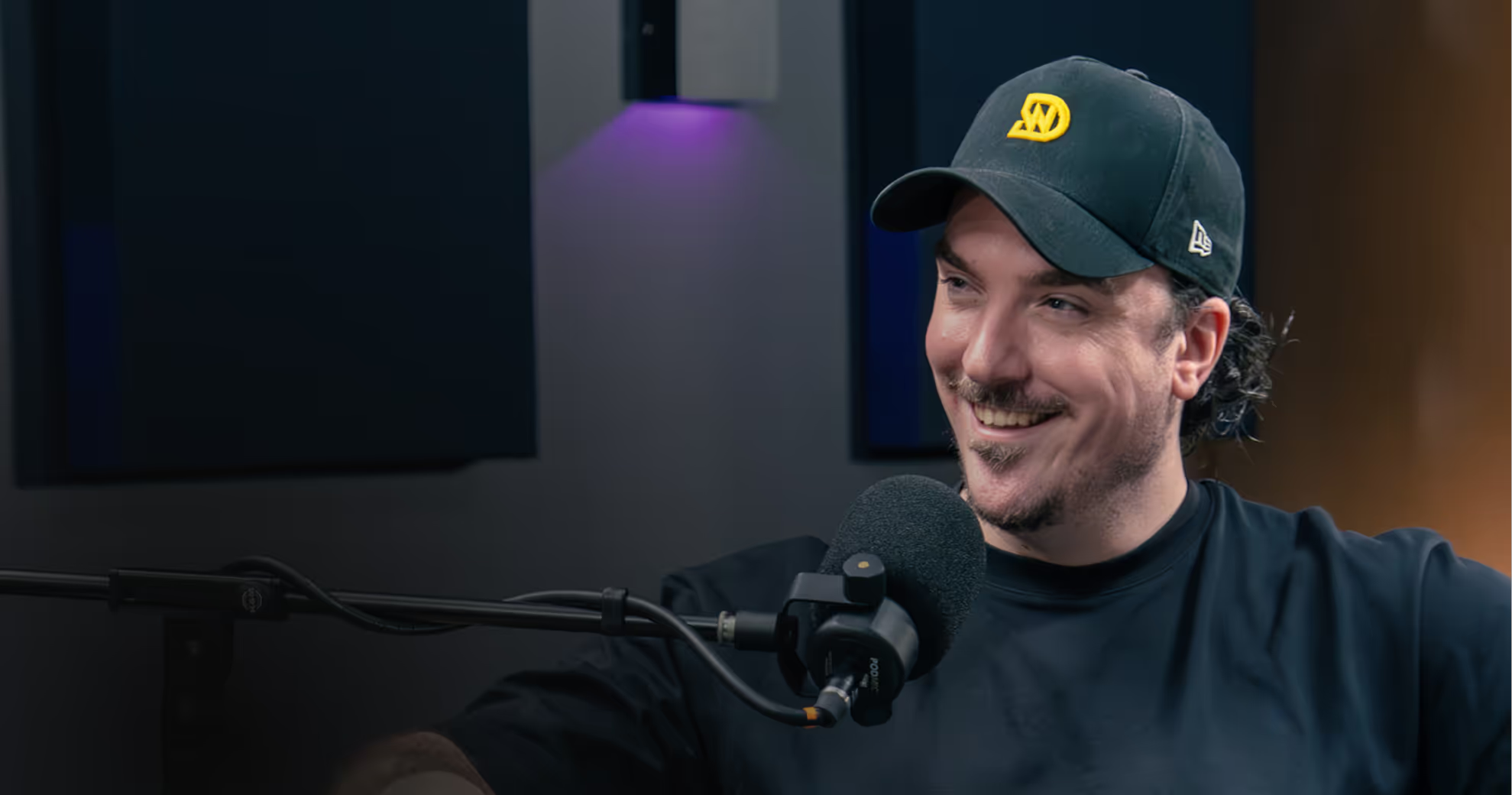
Work With Me

Enquire With Dain’s Team
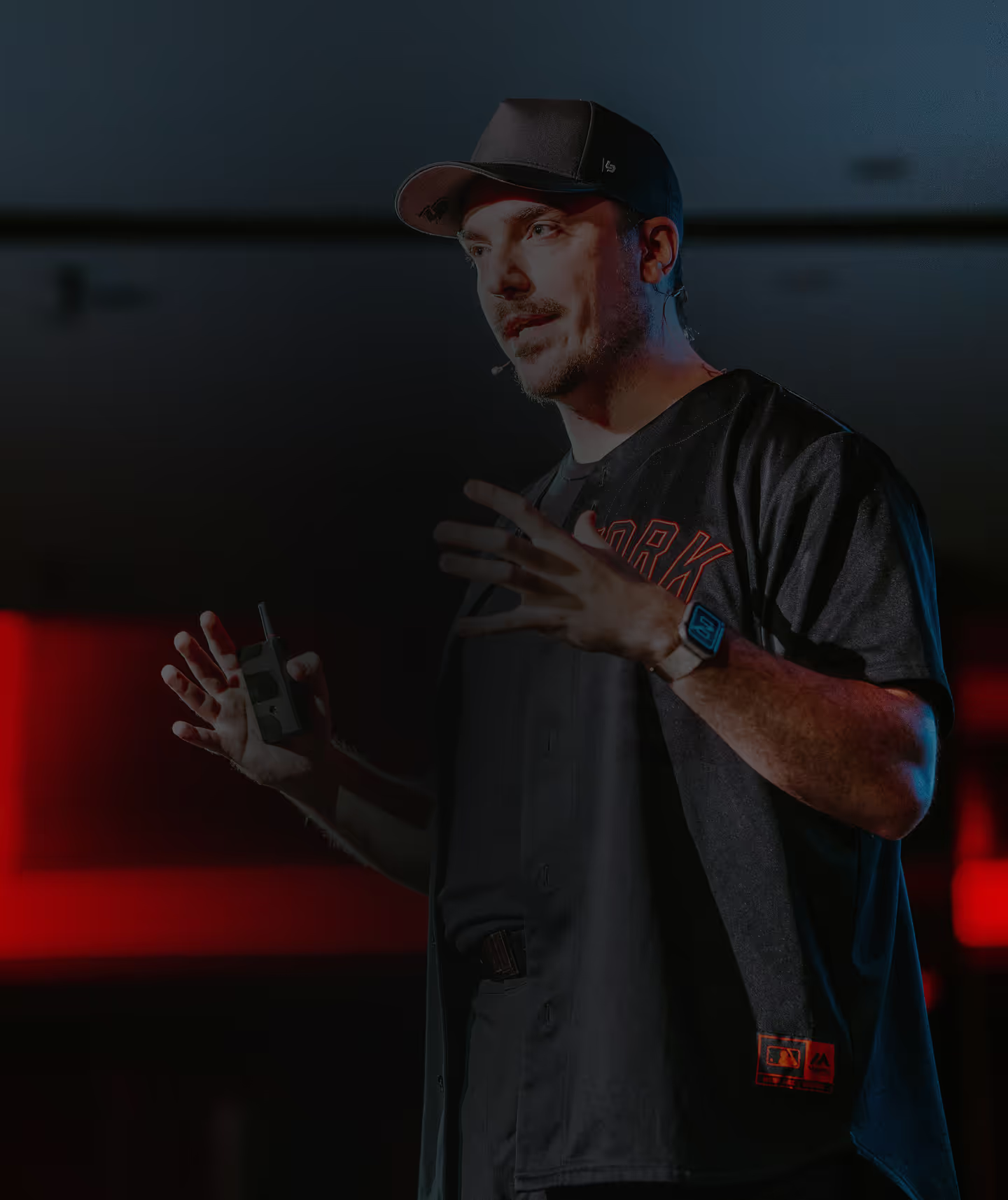
Enquire For Speaking

Let's Get You Branded
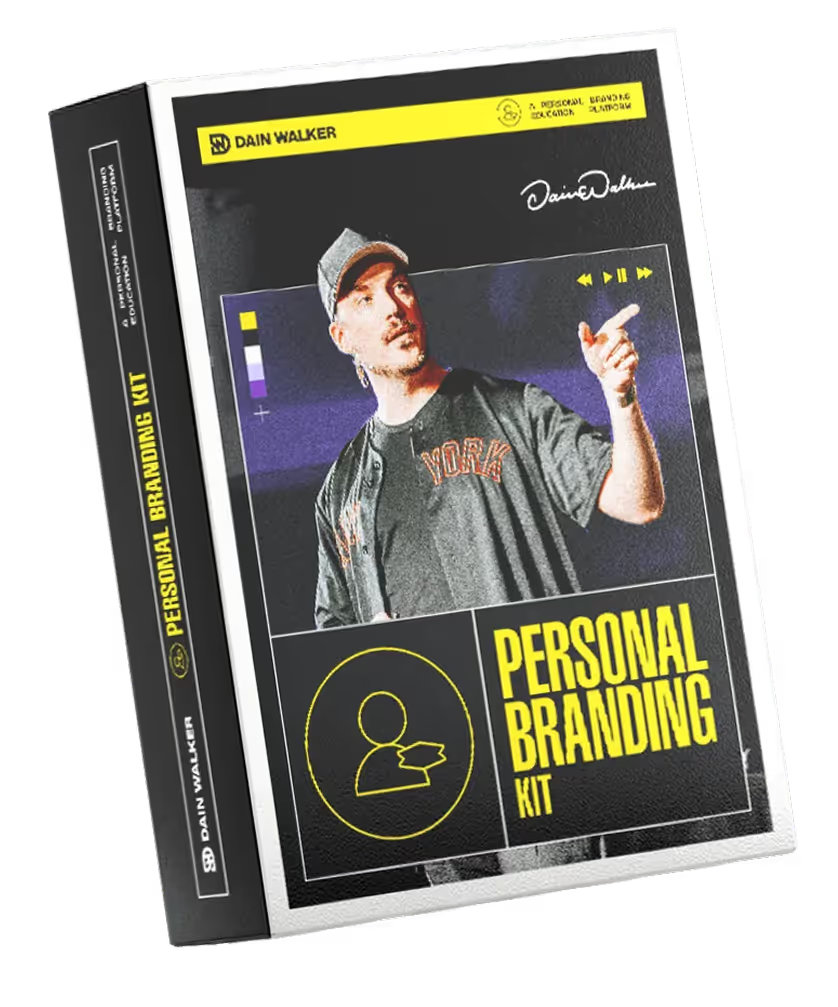
Apply to be a guest
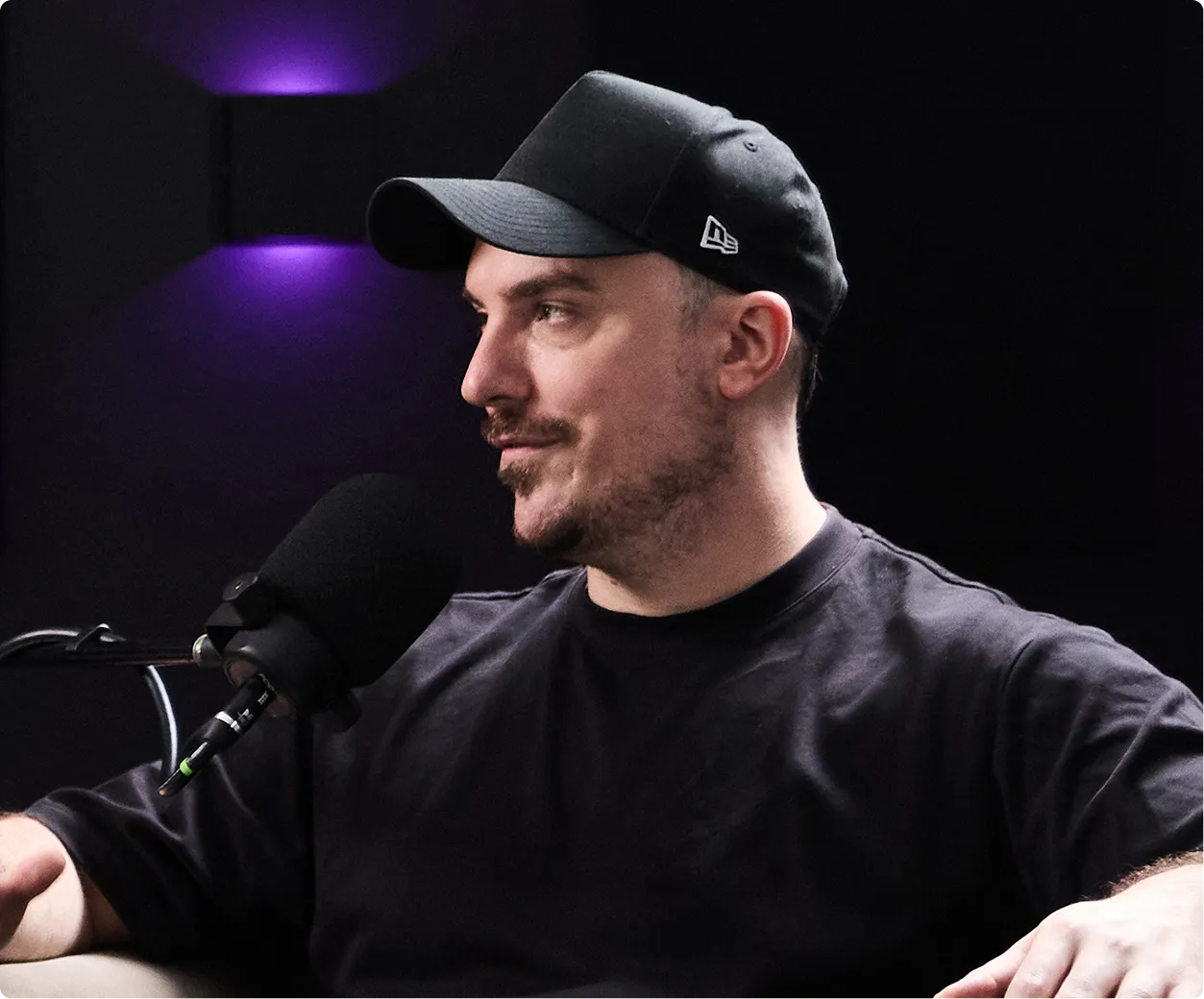
Dive into insights from industry leaders and experts.

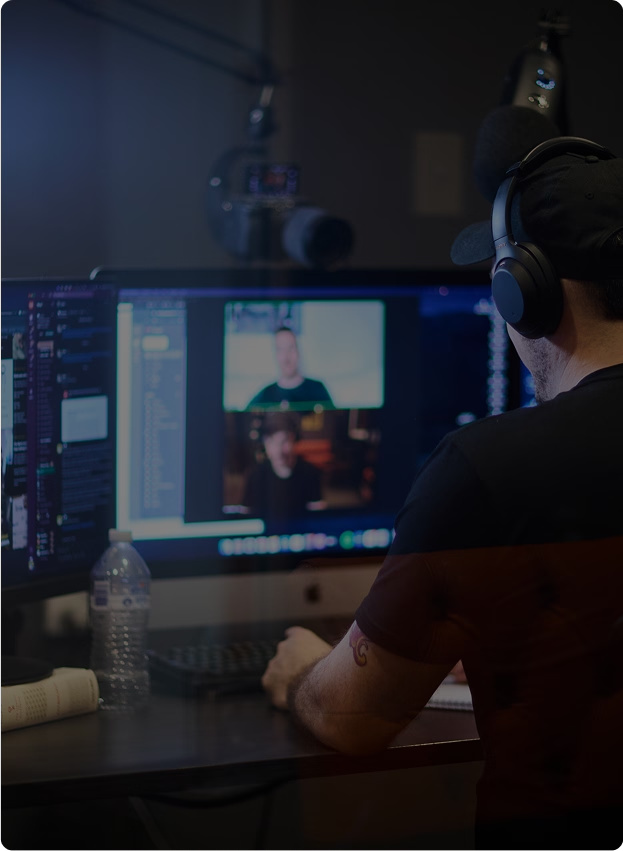
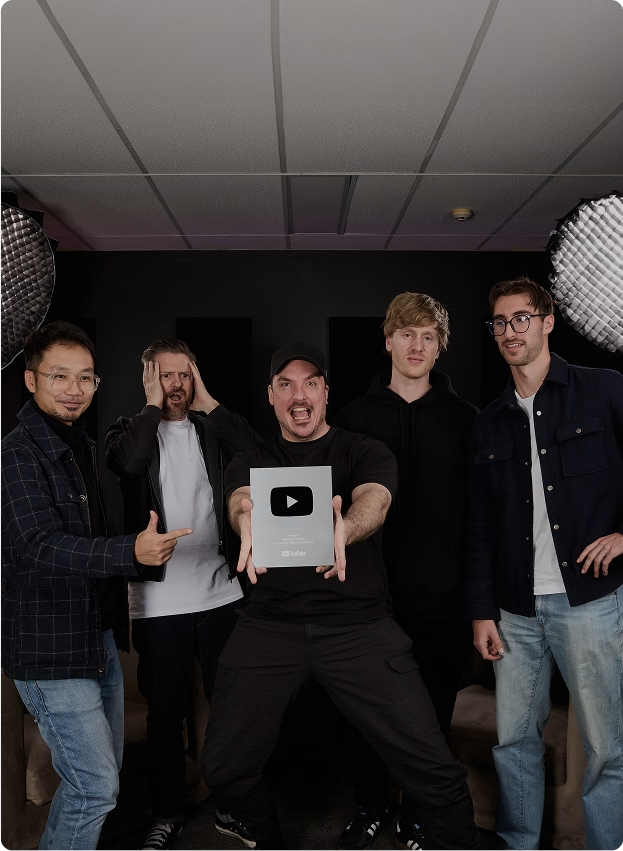
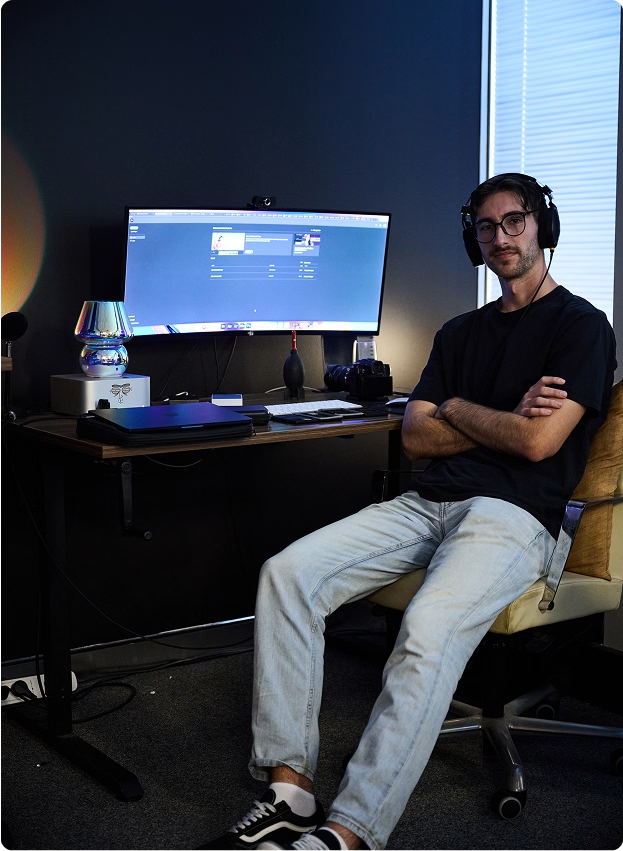
Stream now
Dive into expert advice and industry trends.
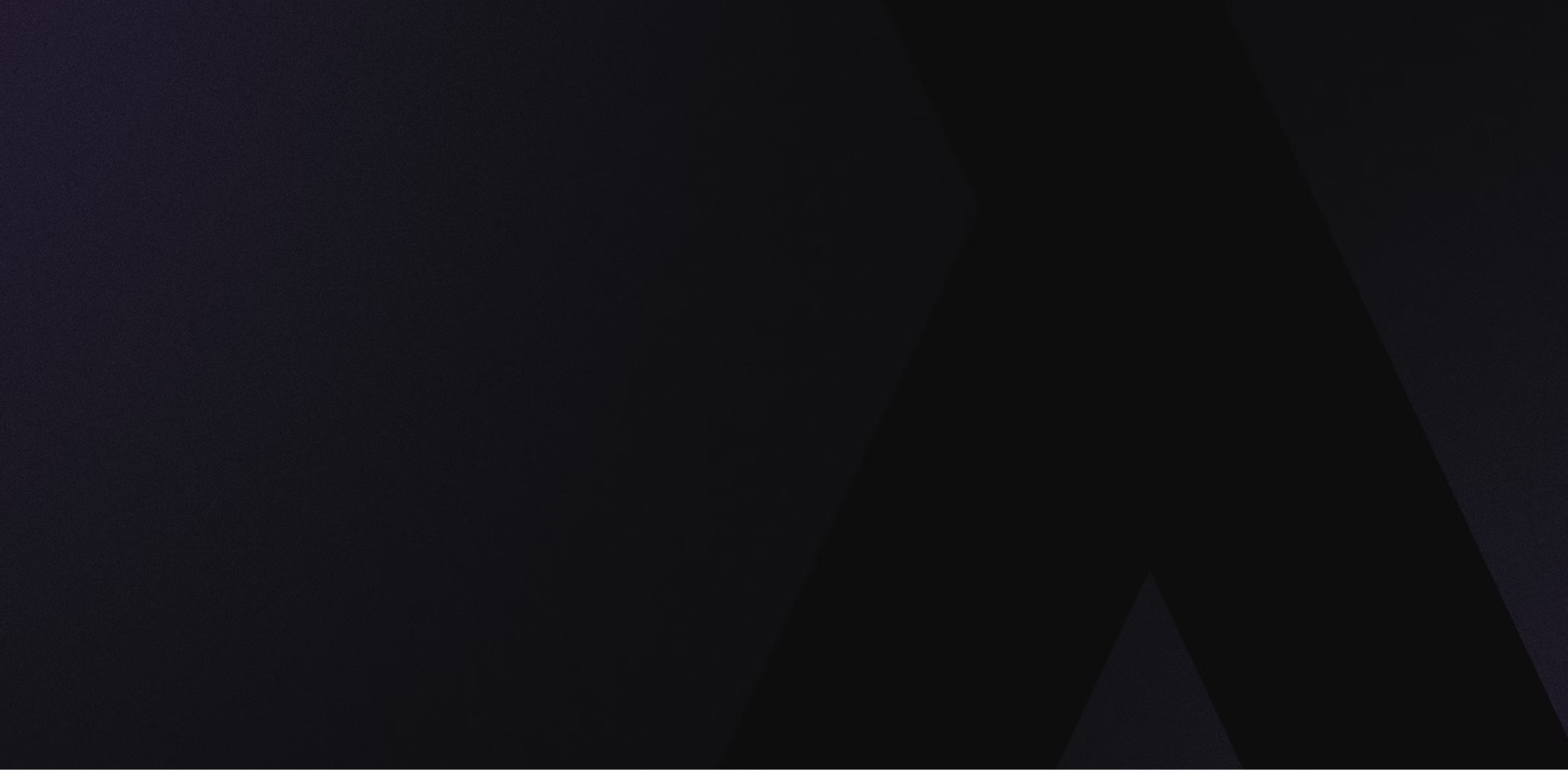

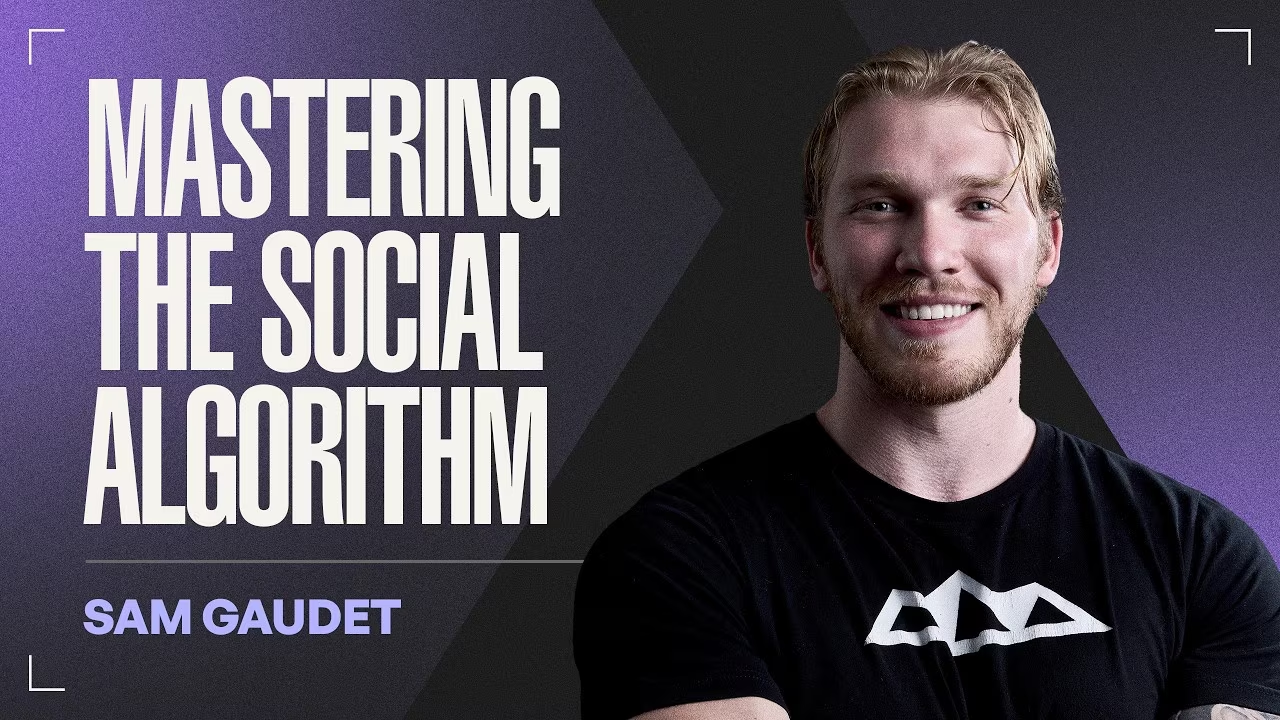
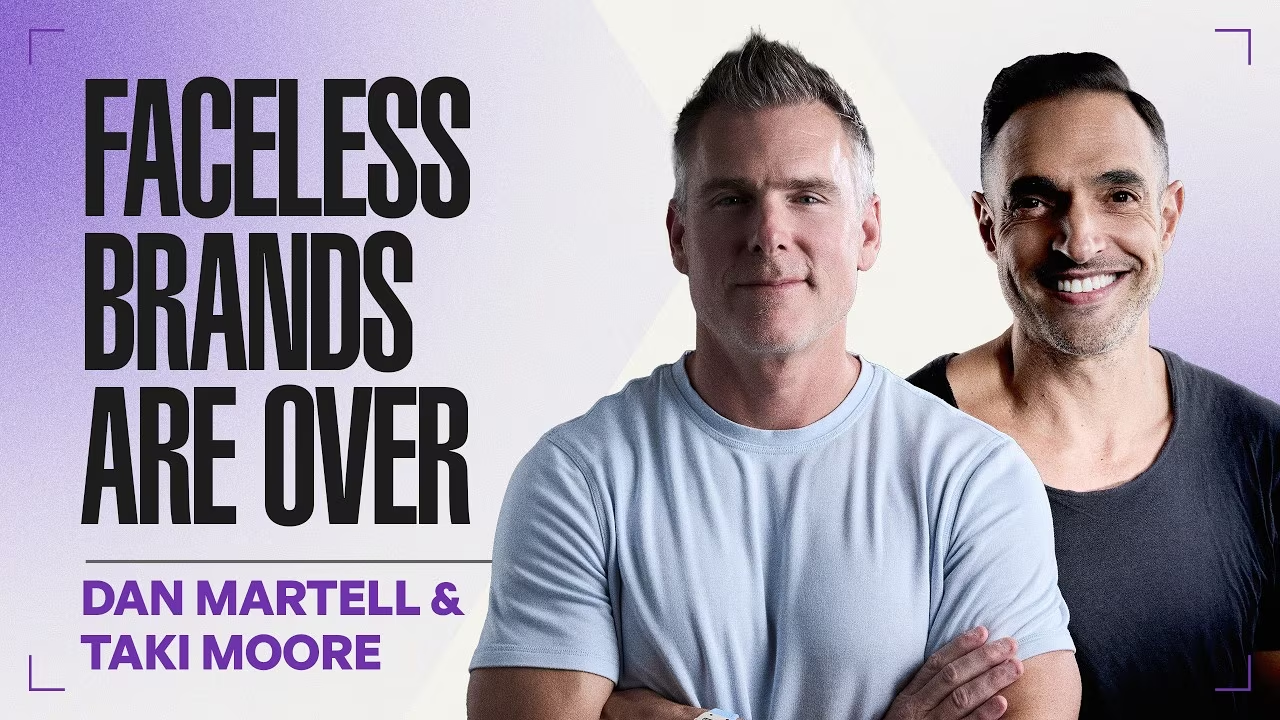
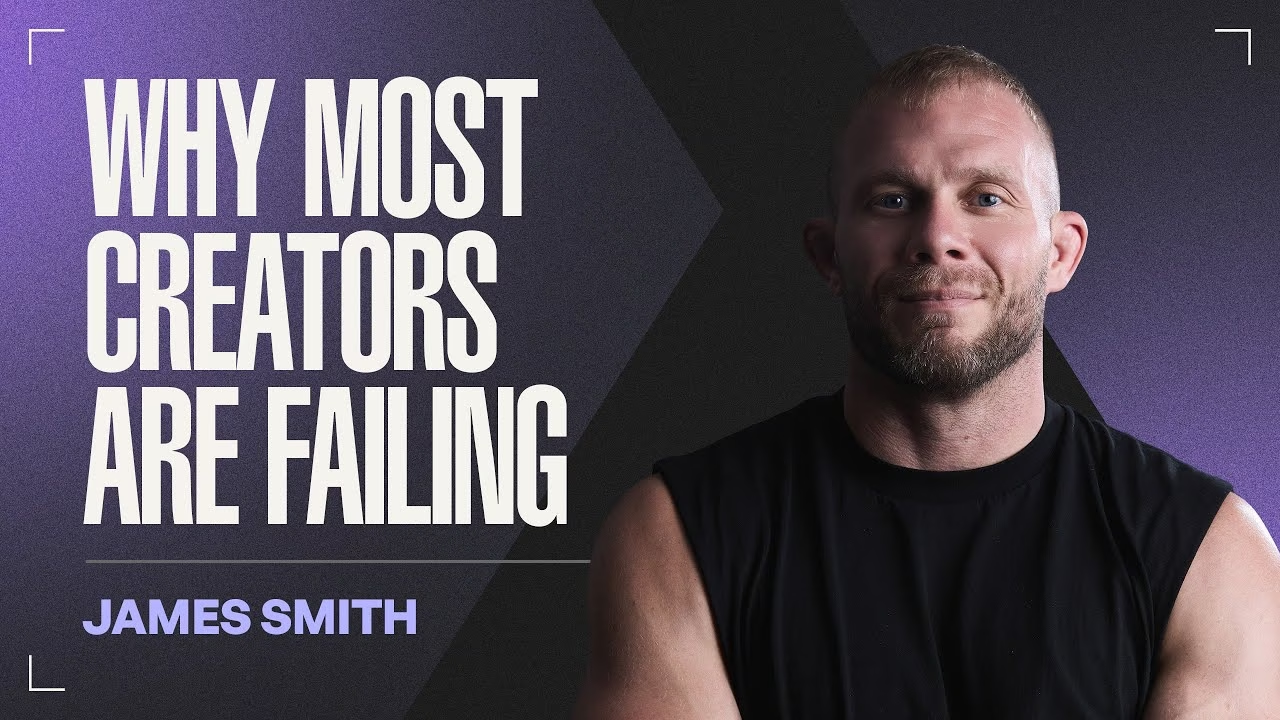
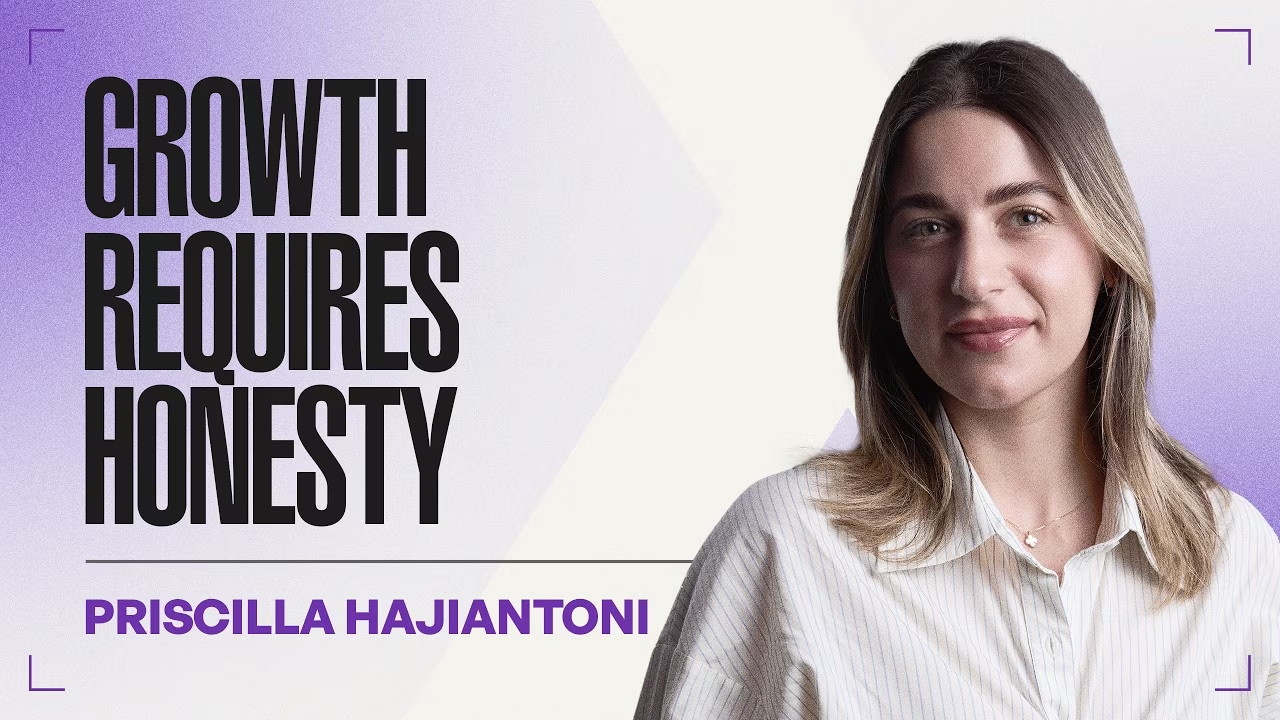
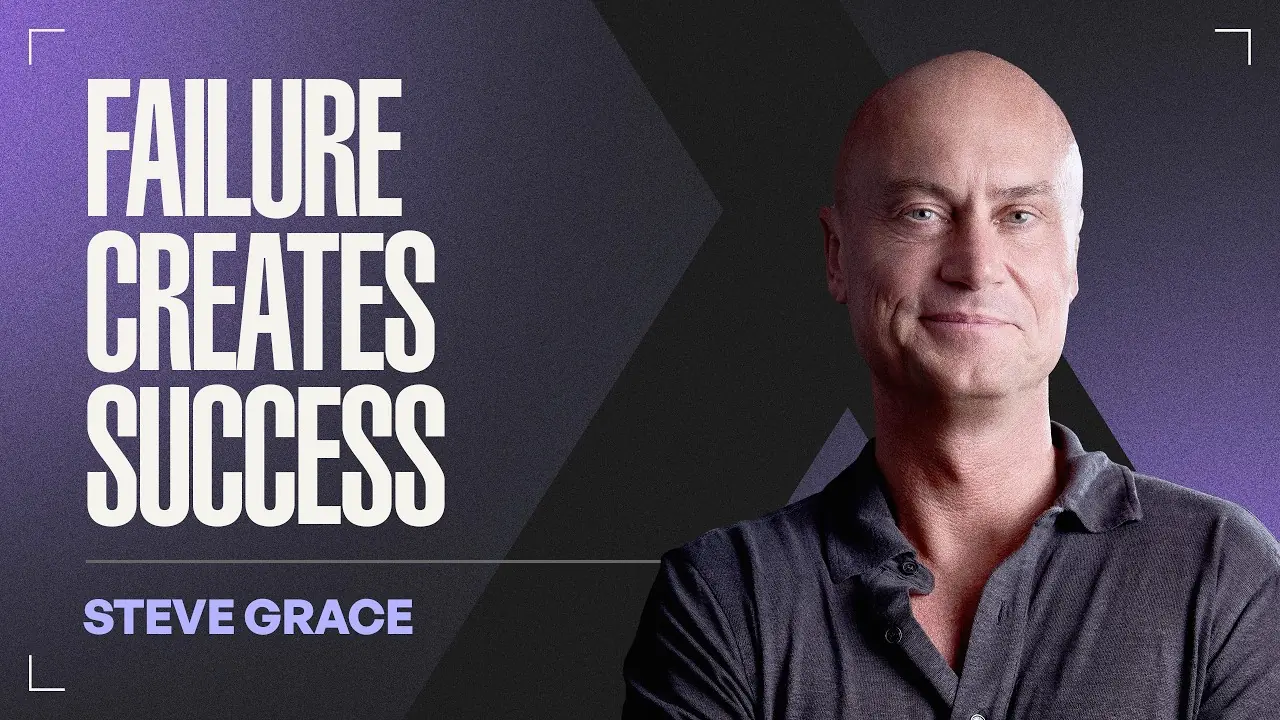
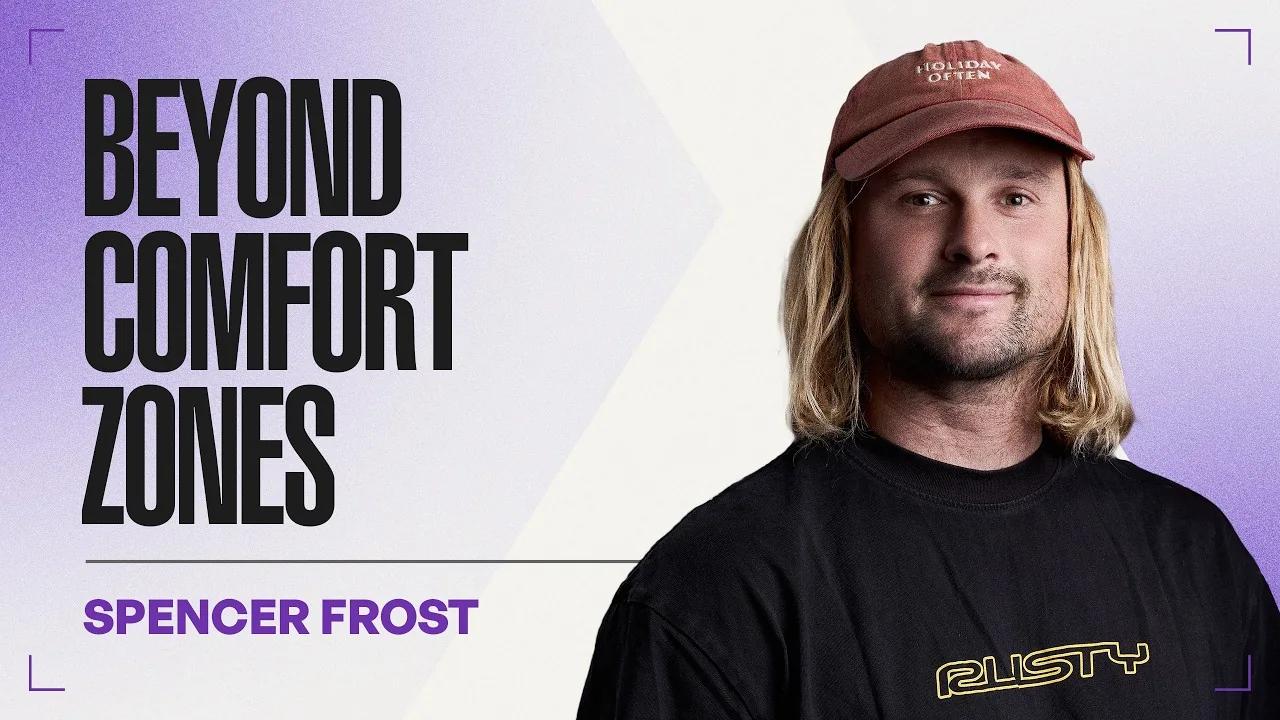
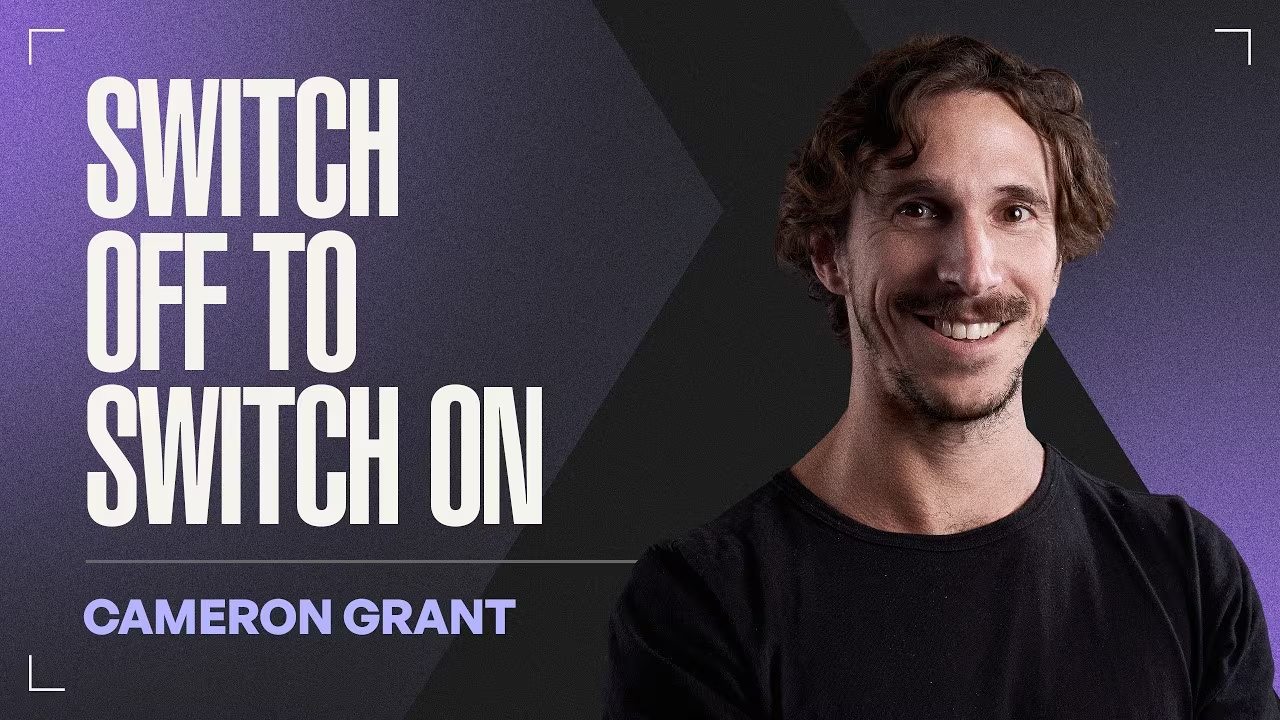
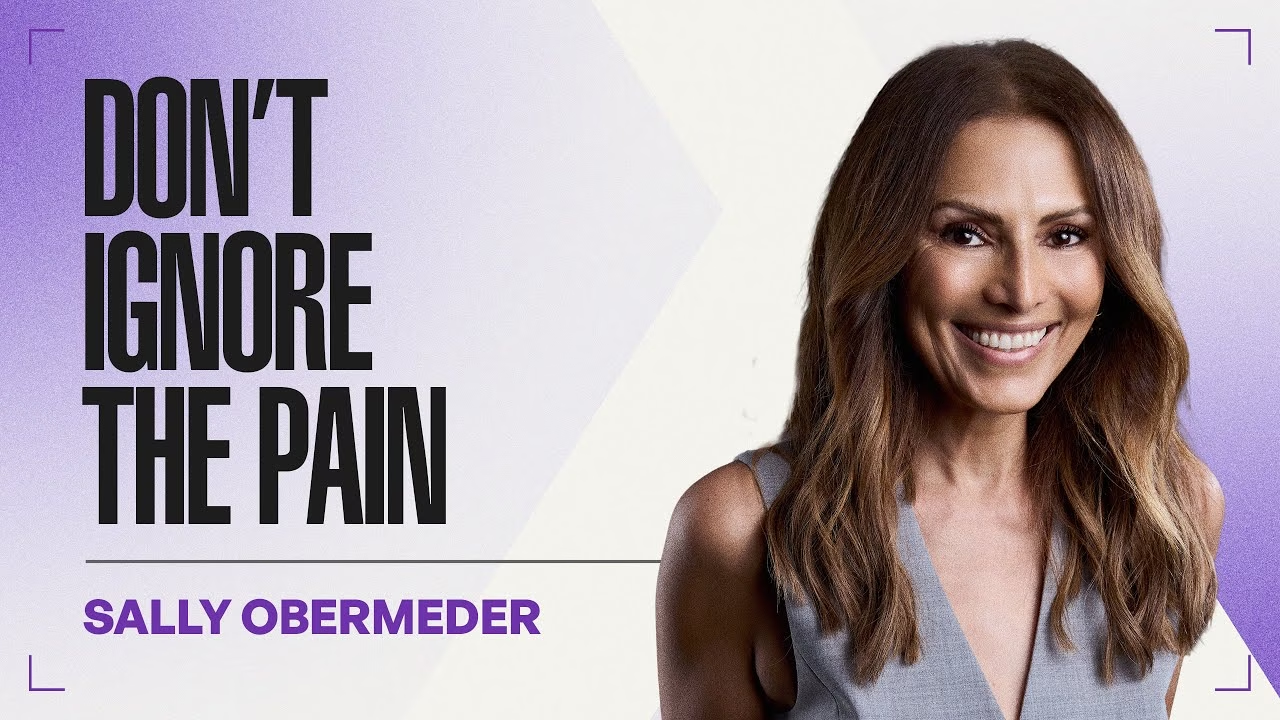
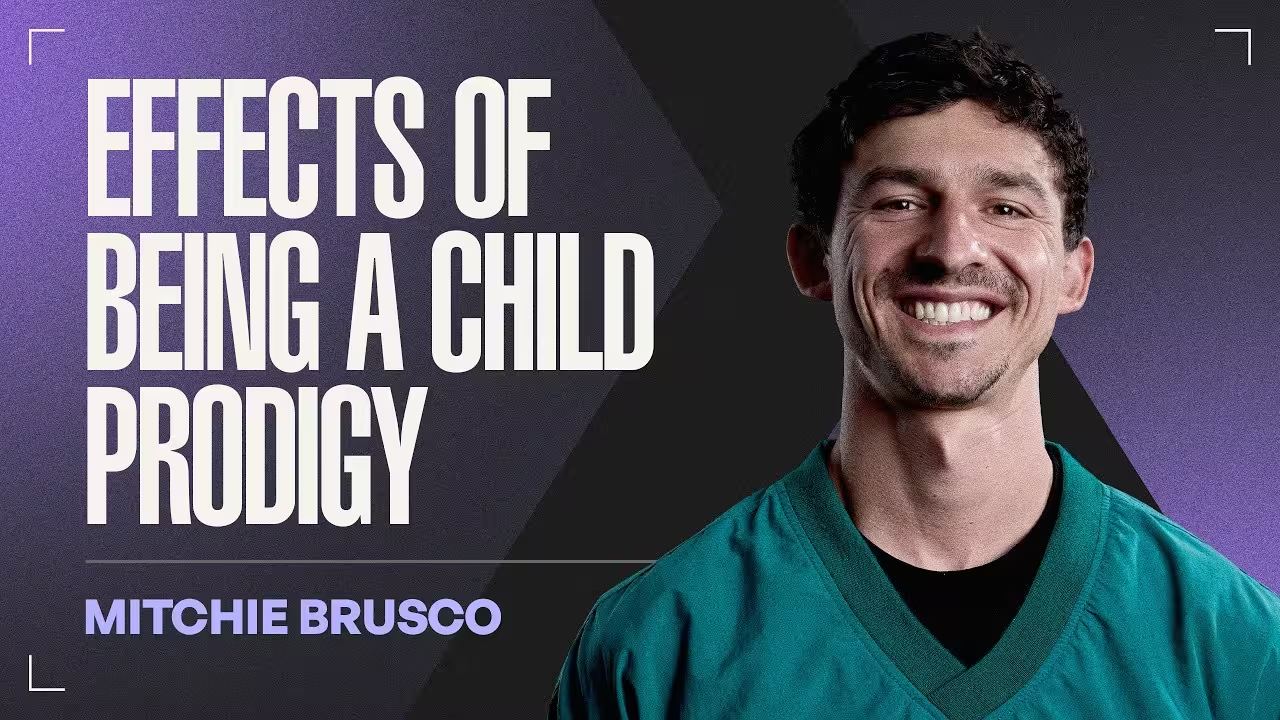
.avif)
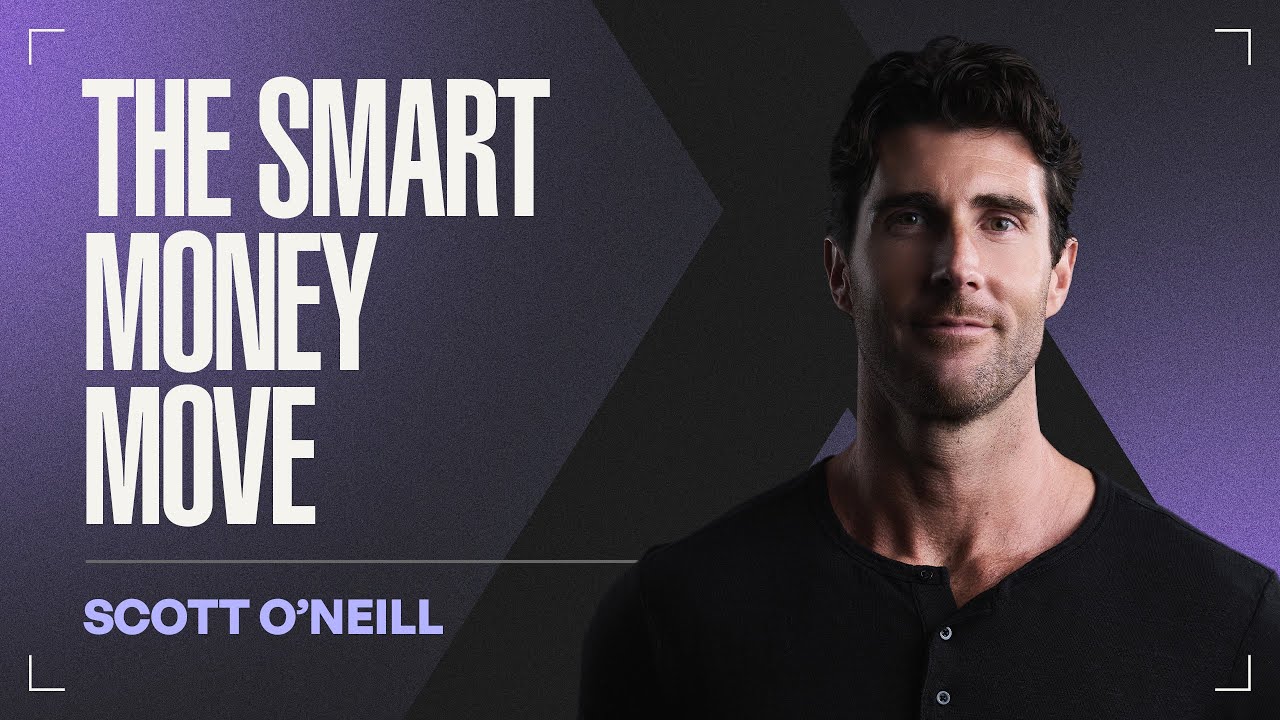
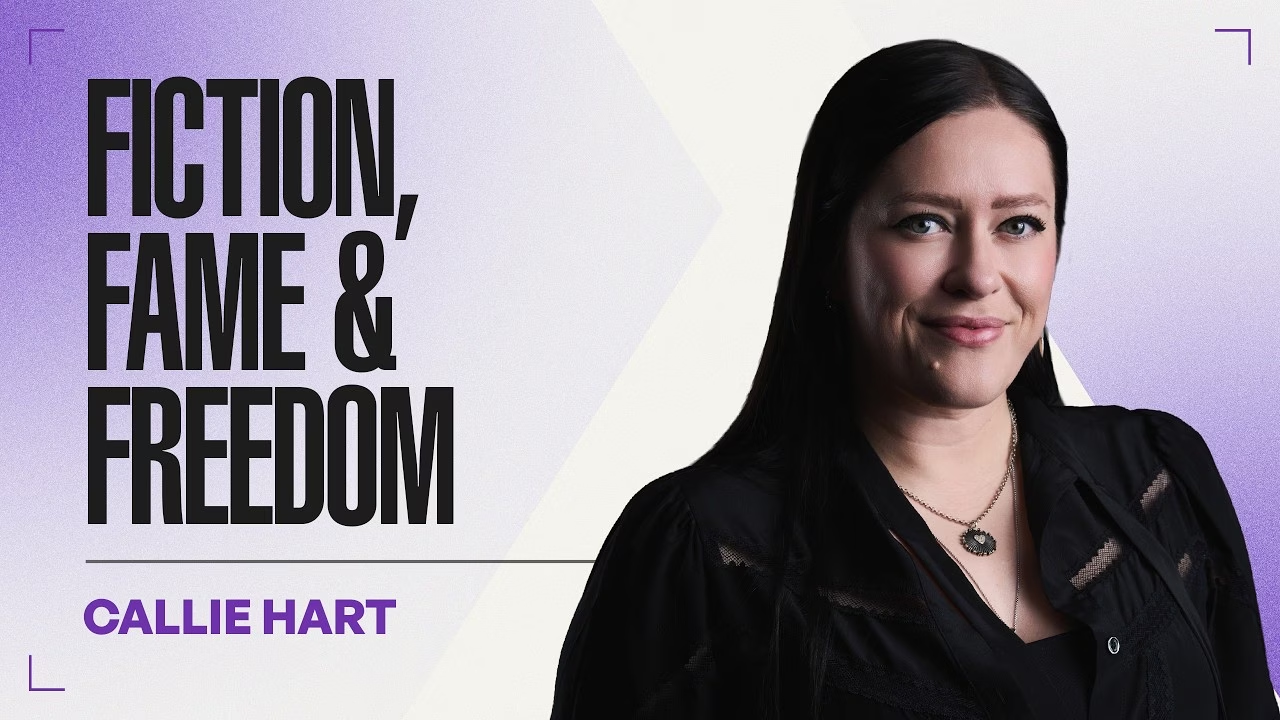

.avif)
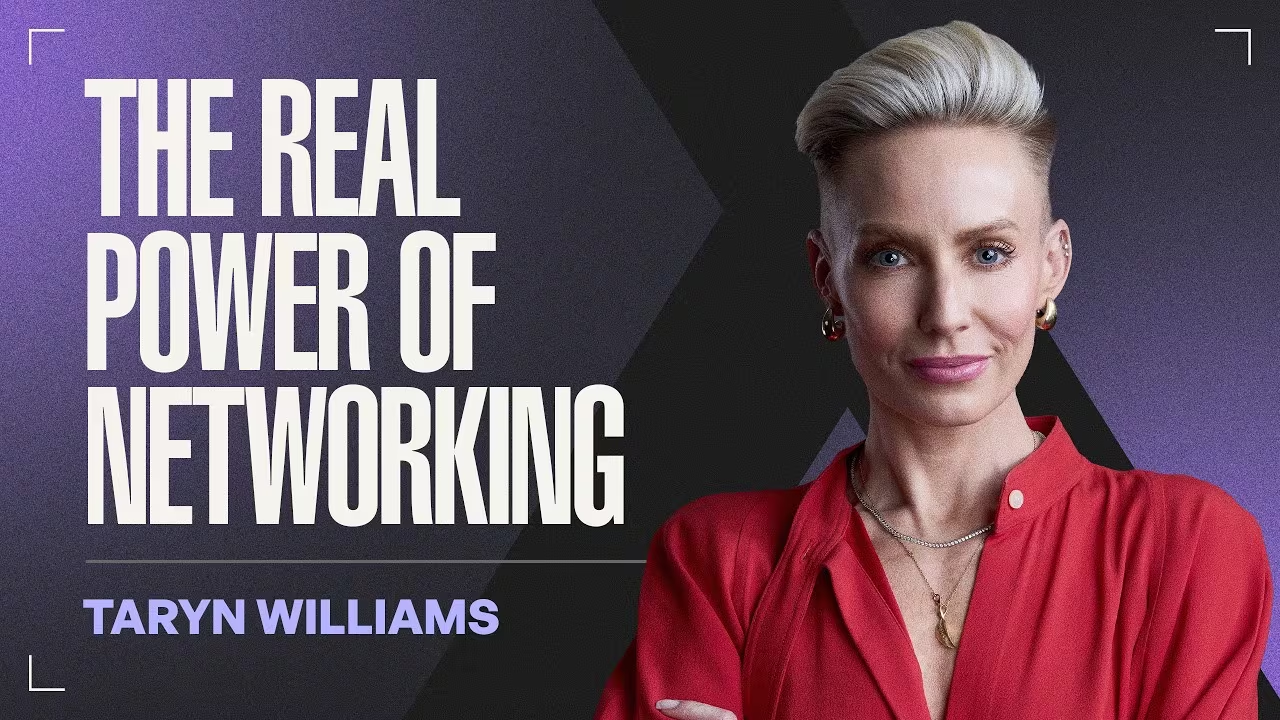

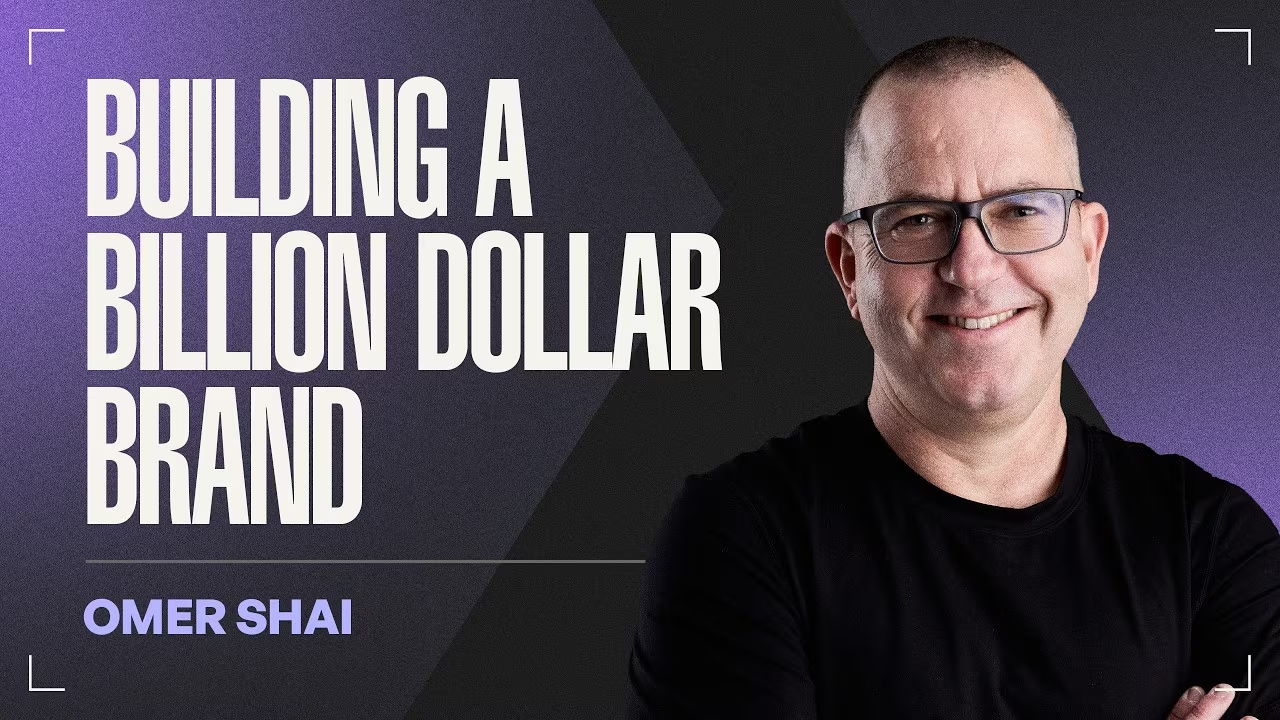
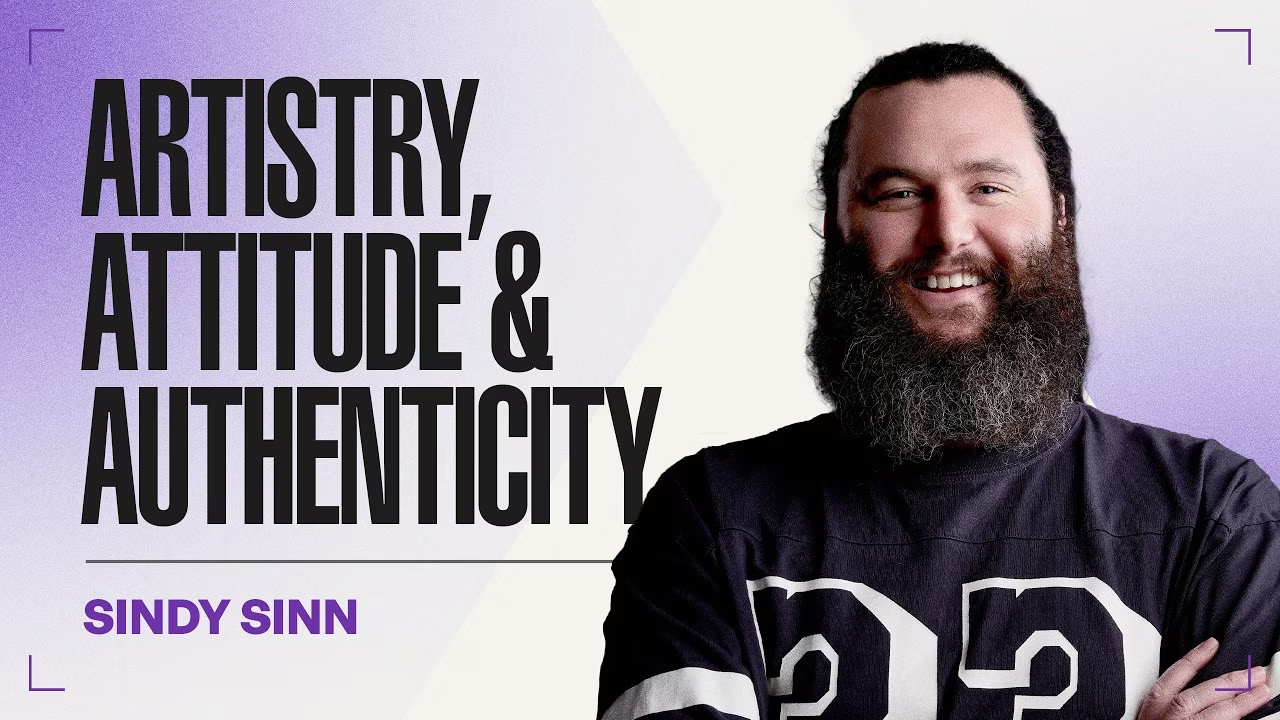
%20(1).avif)
